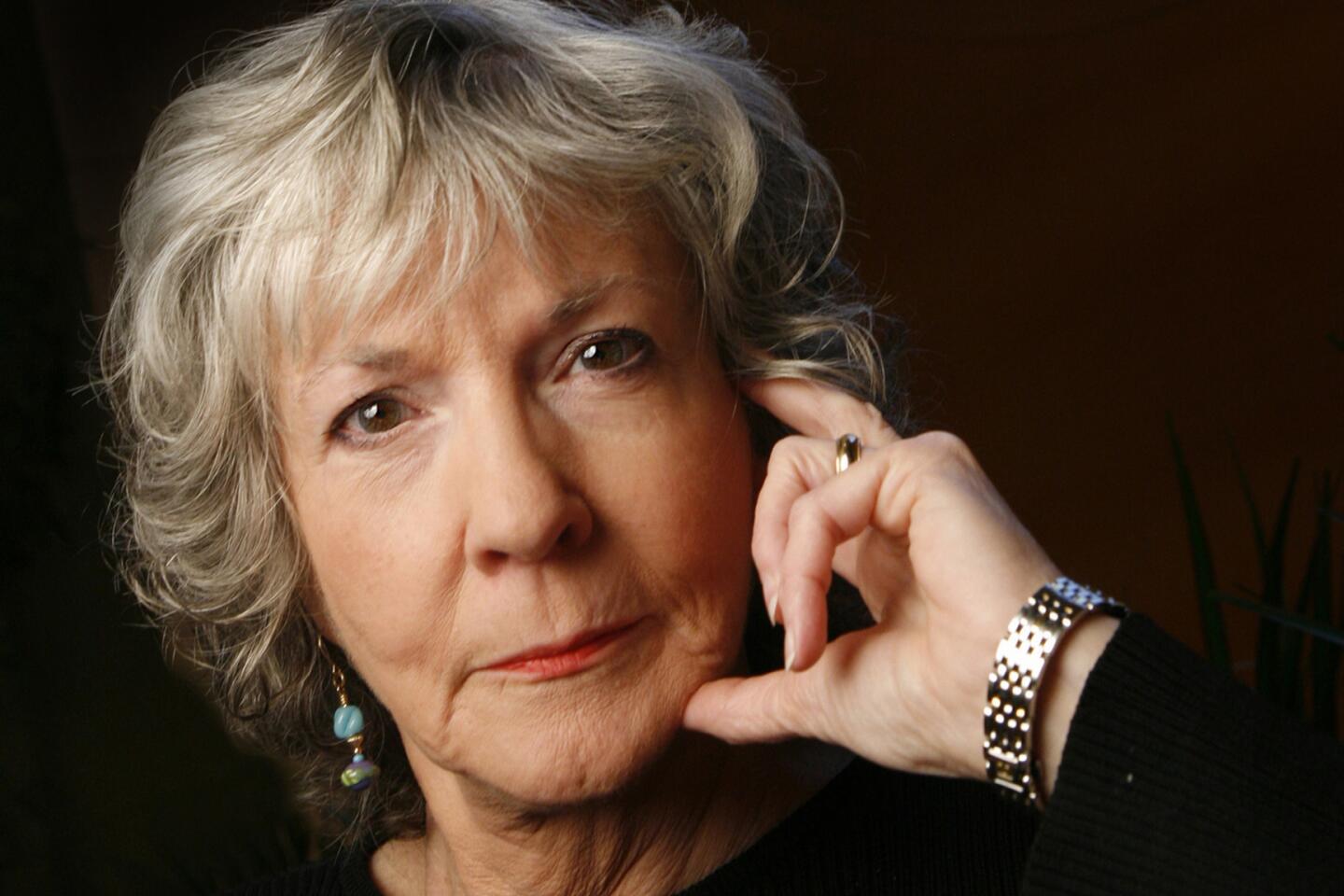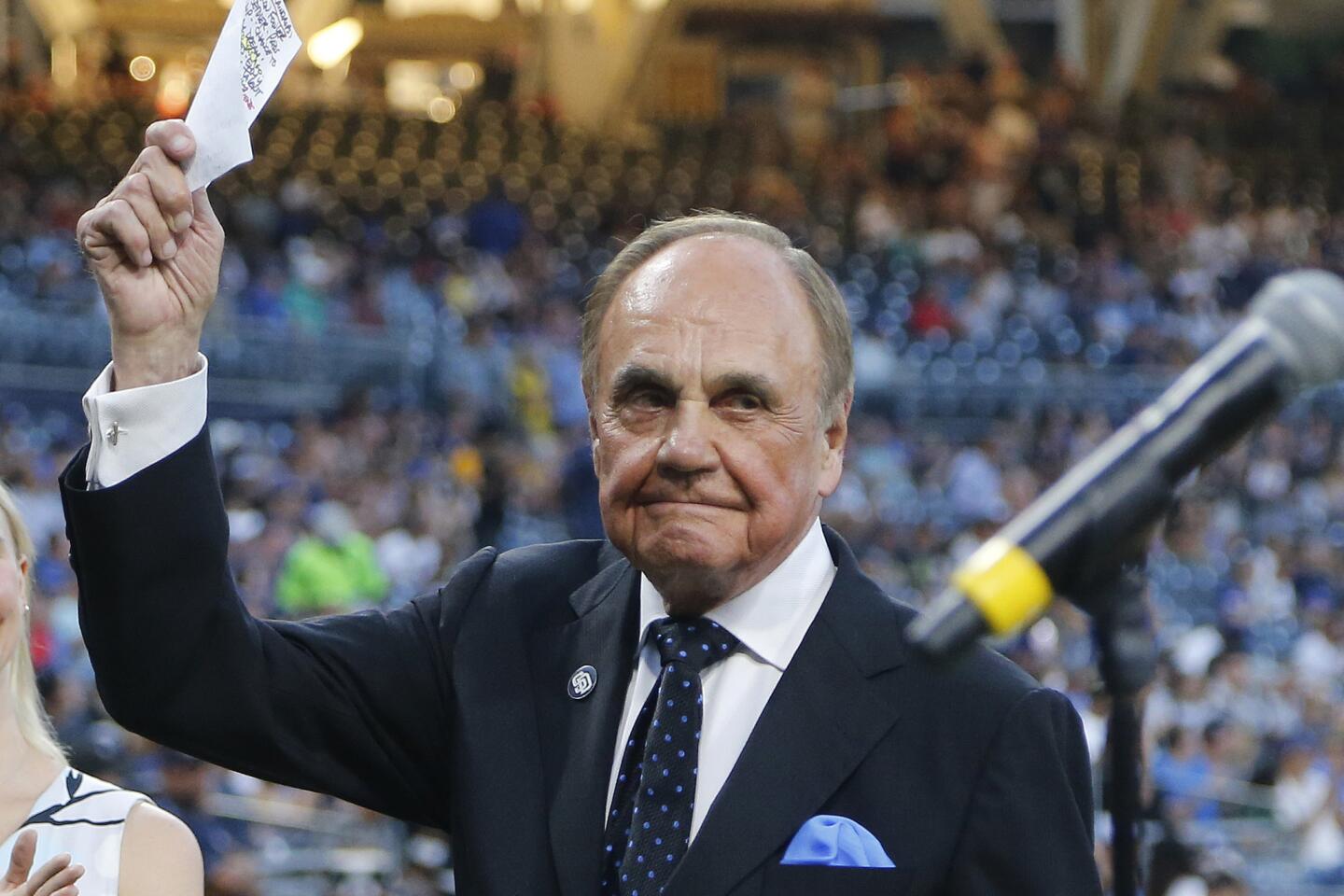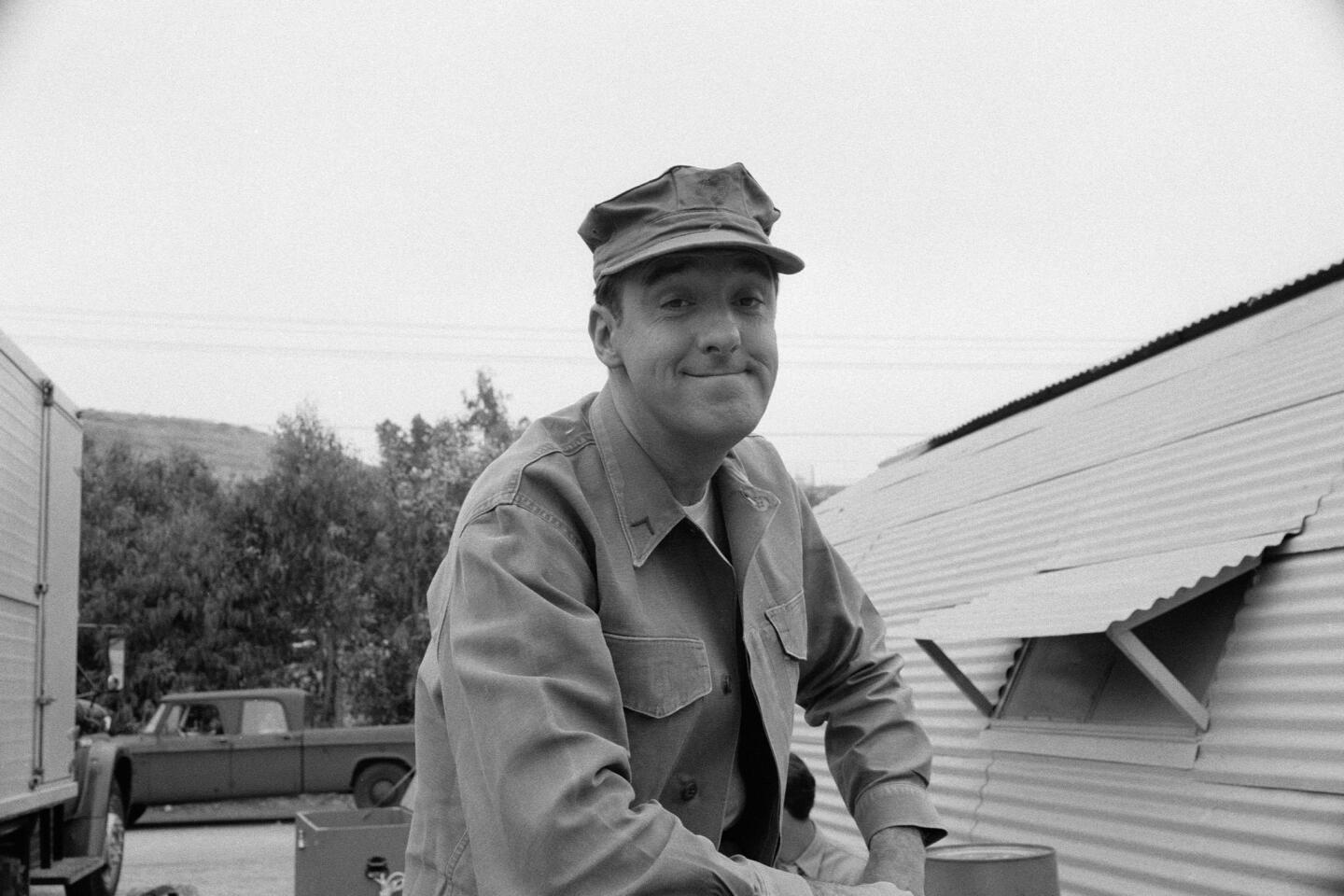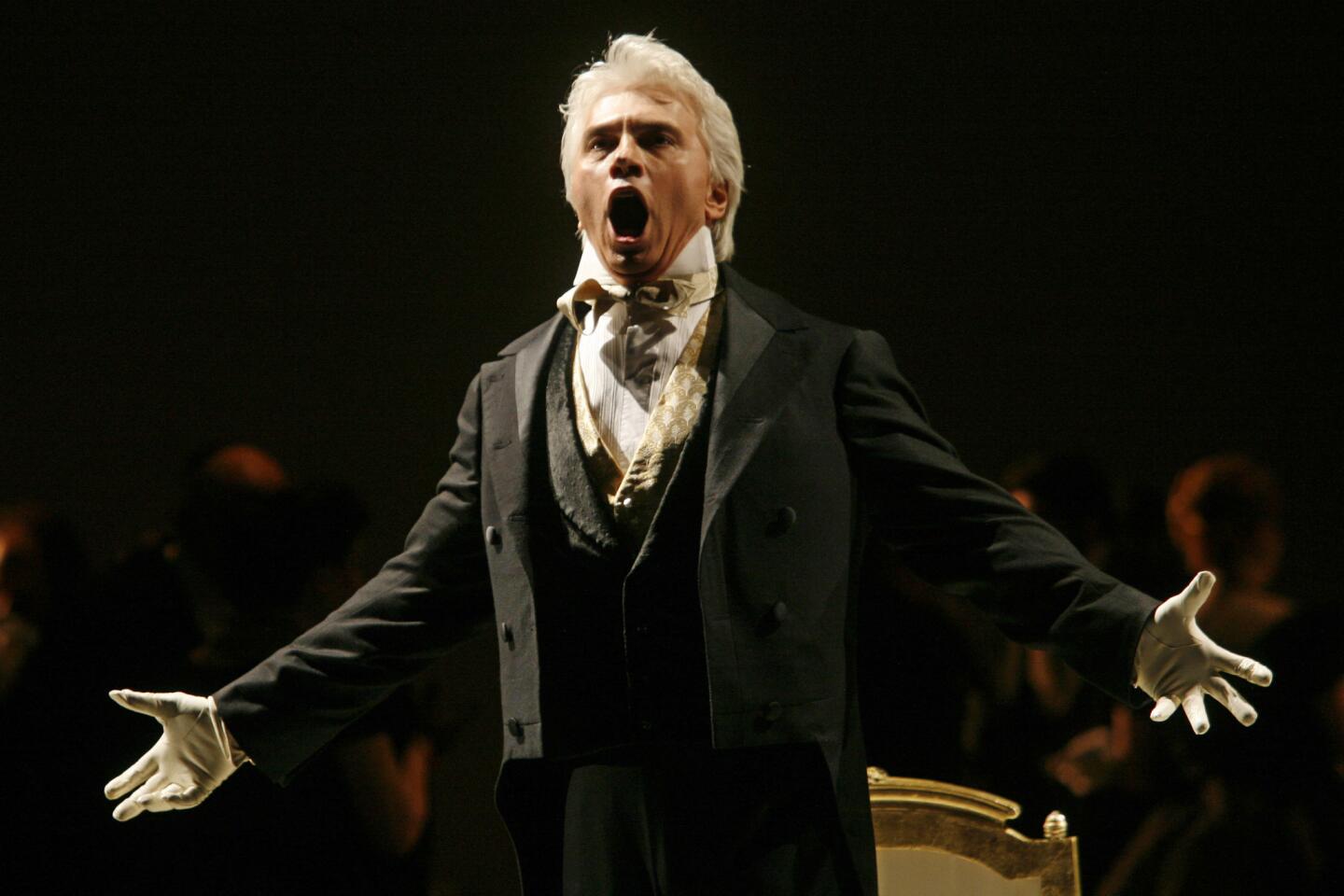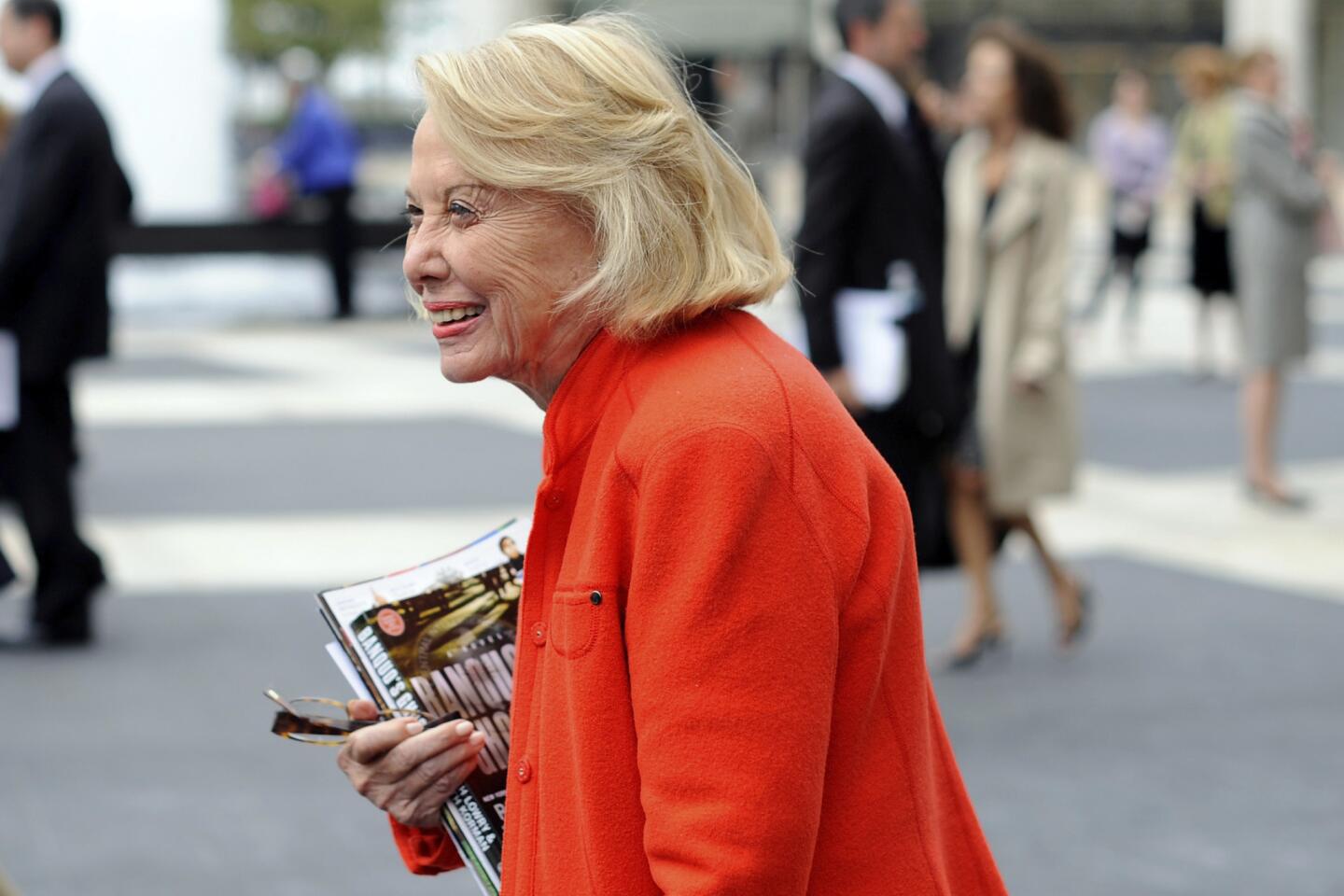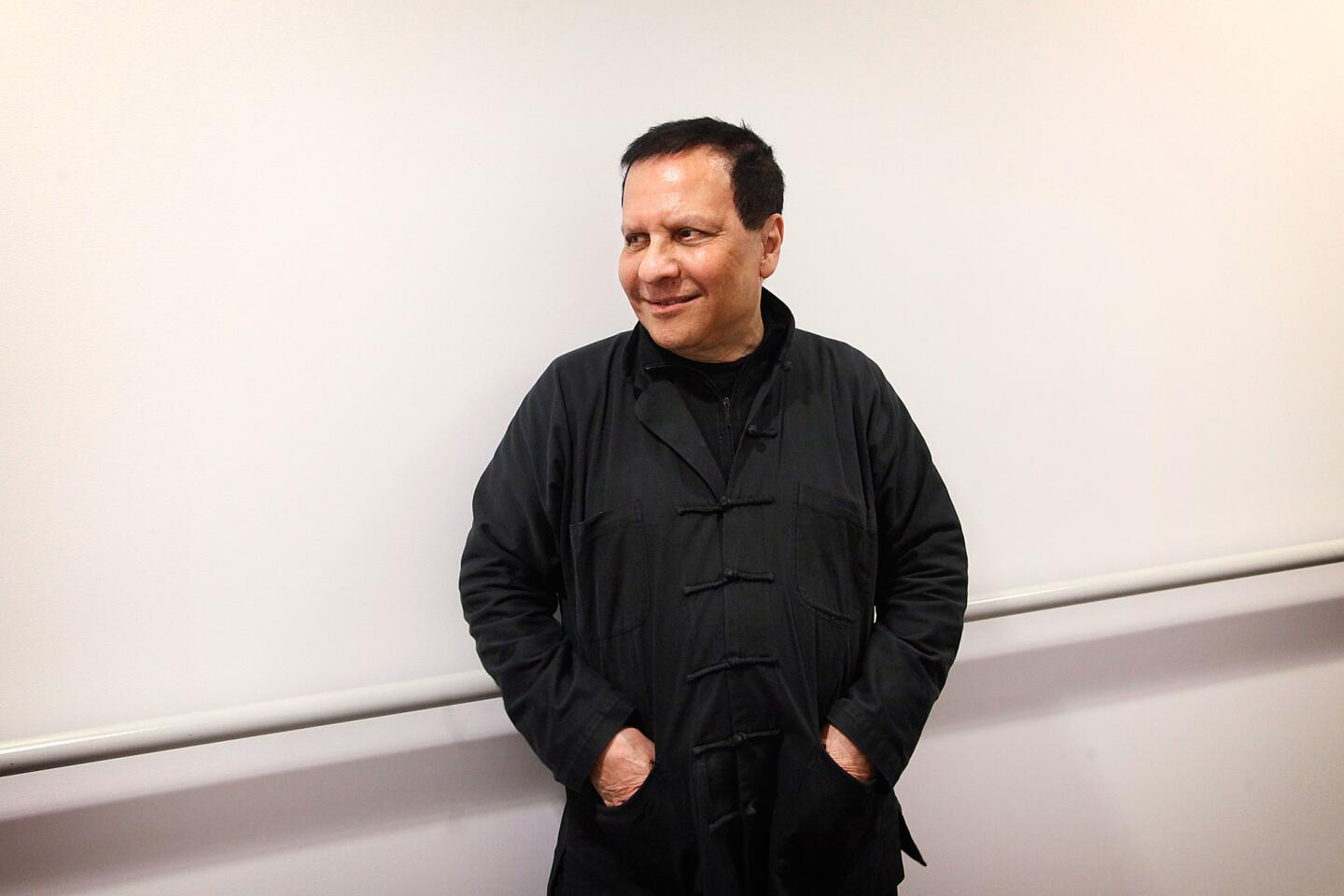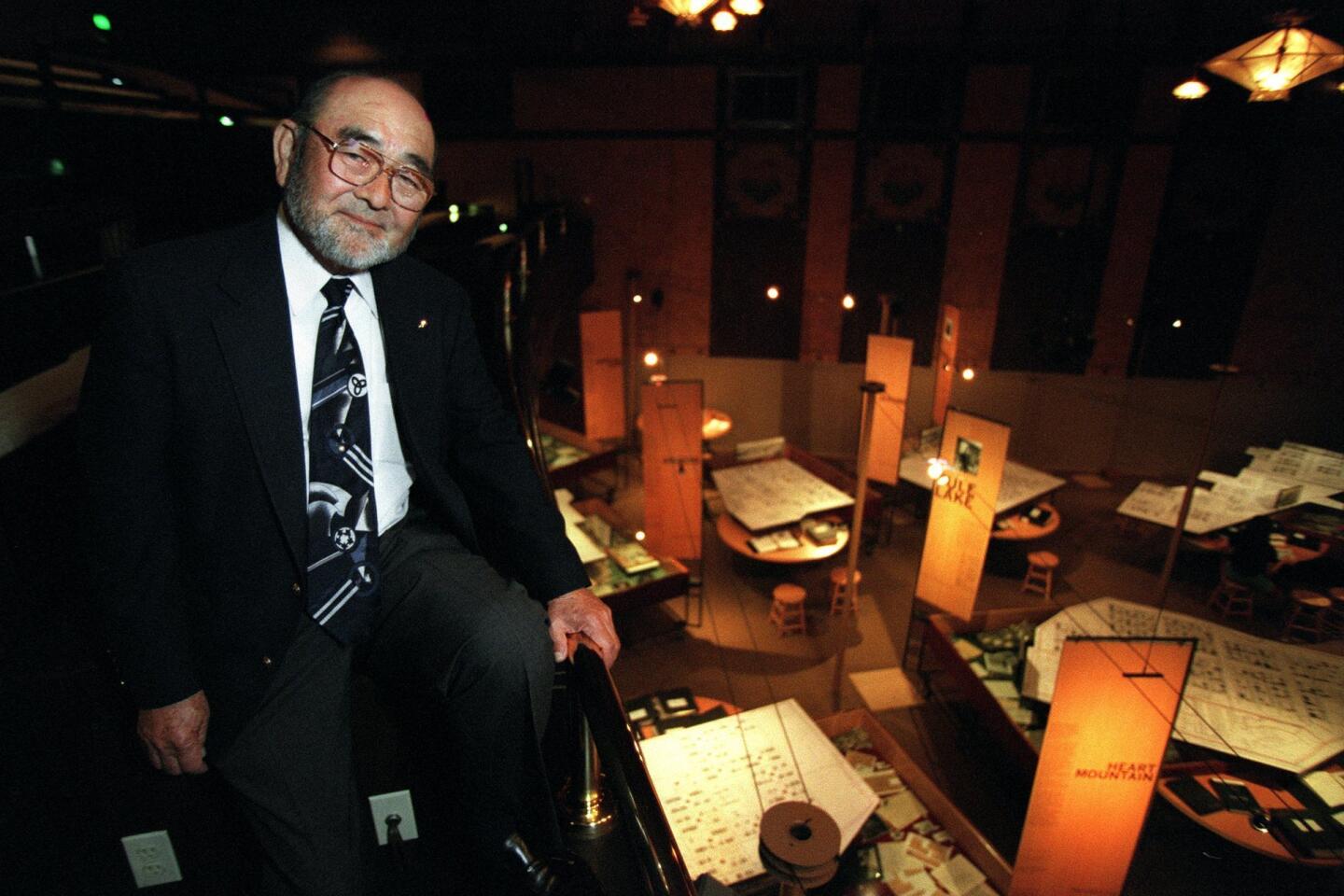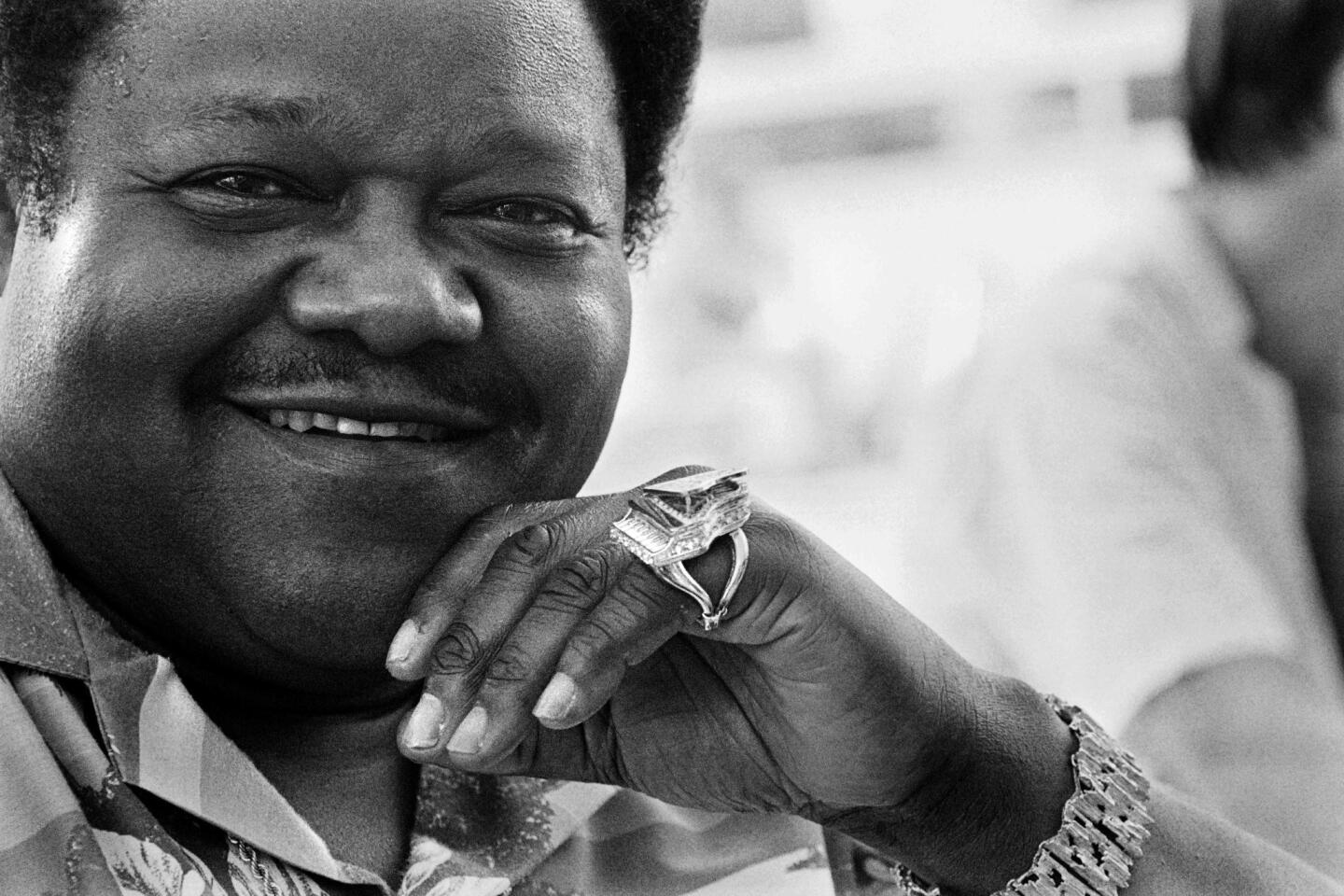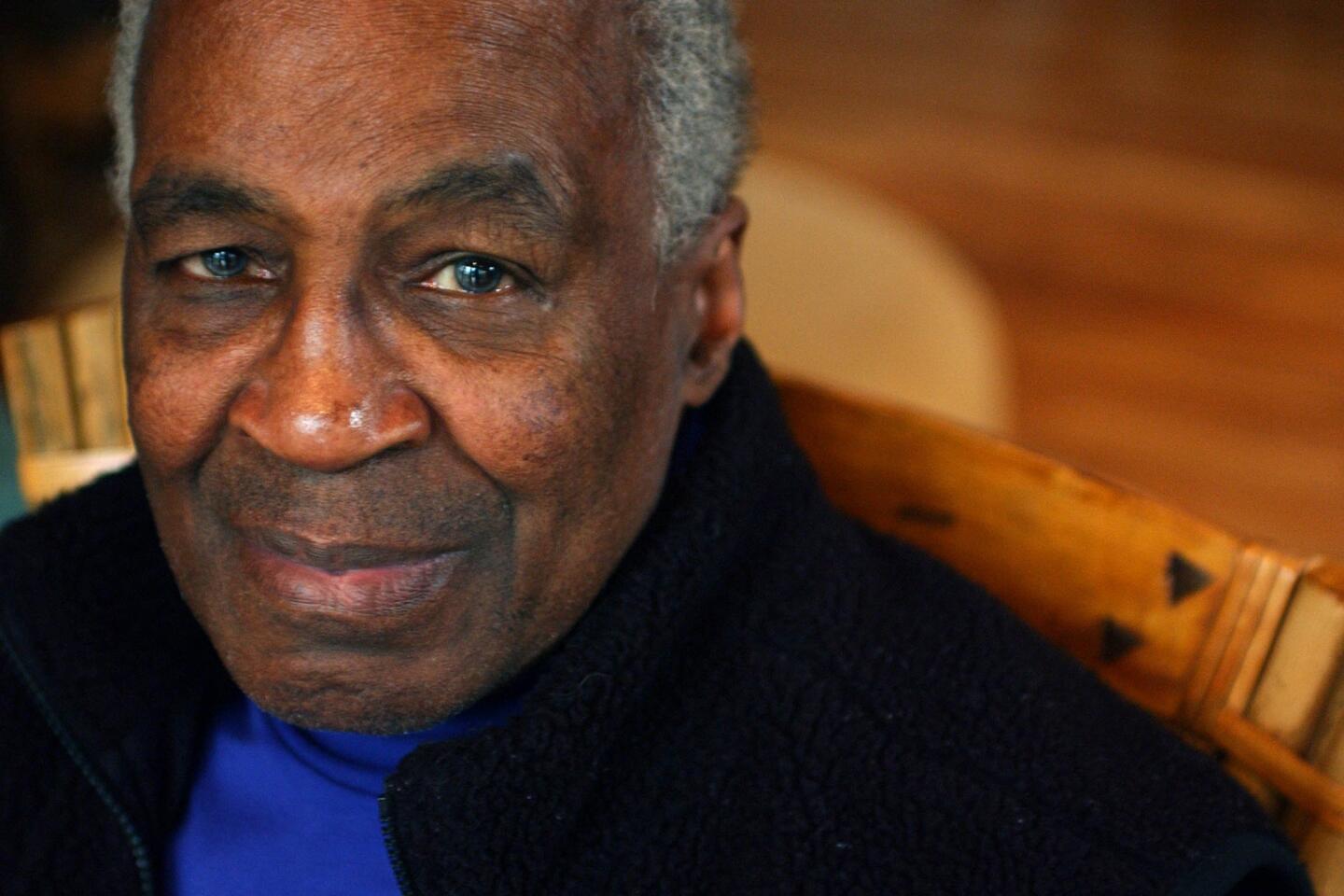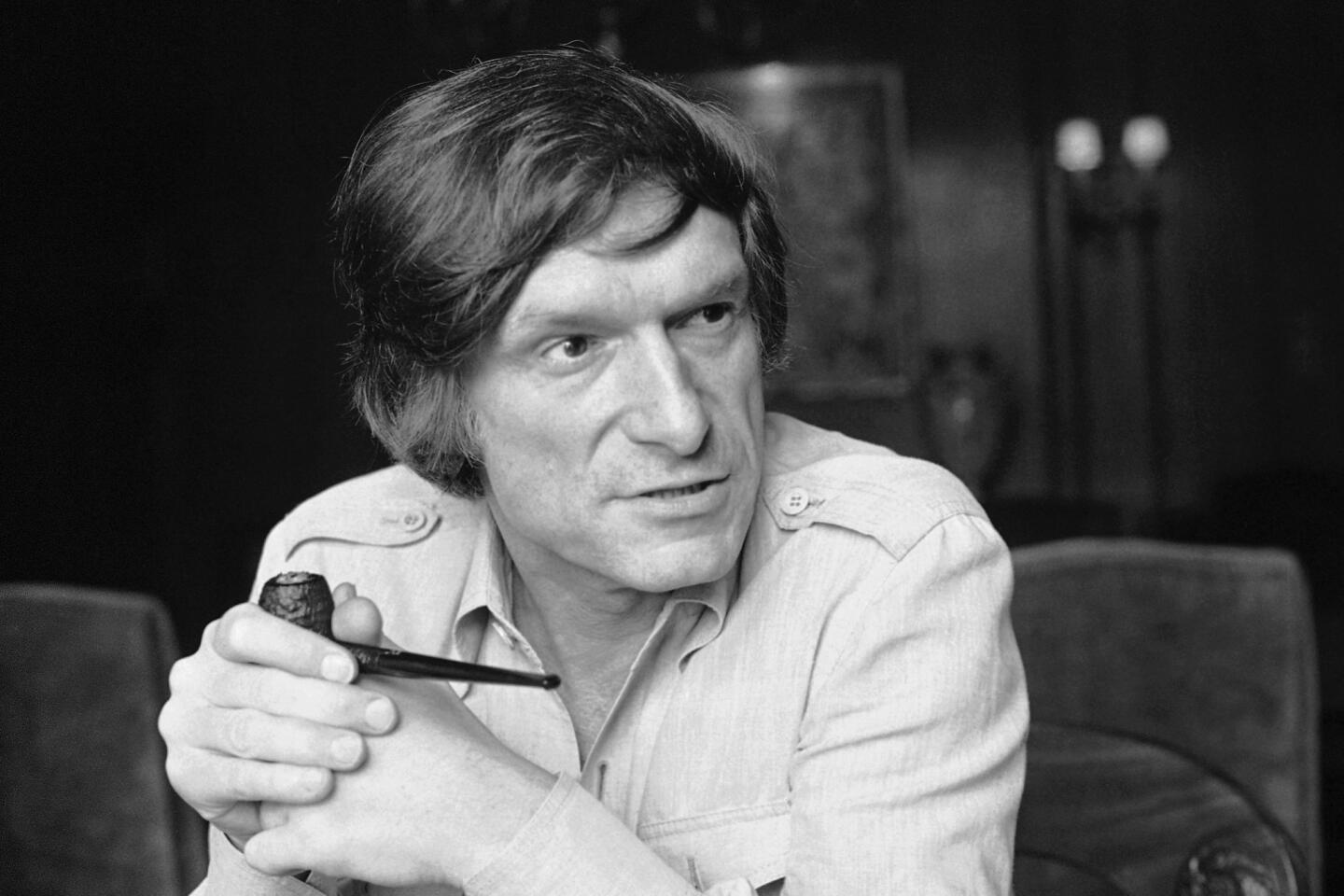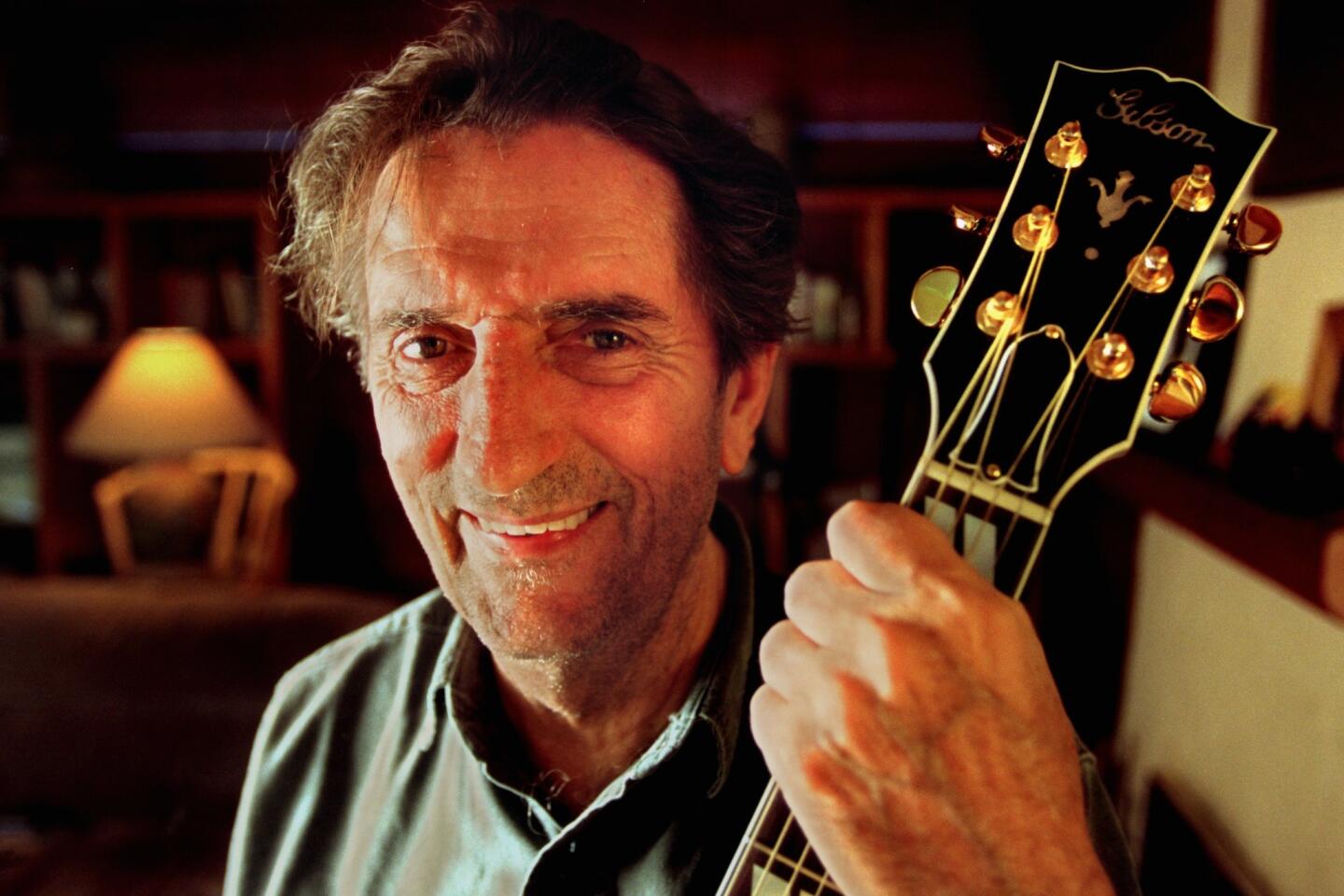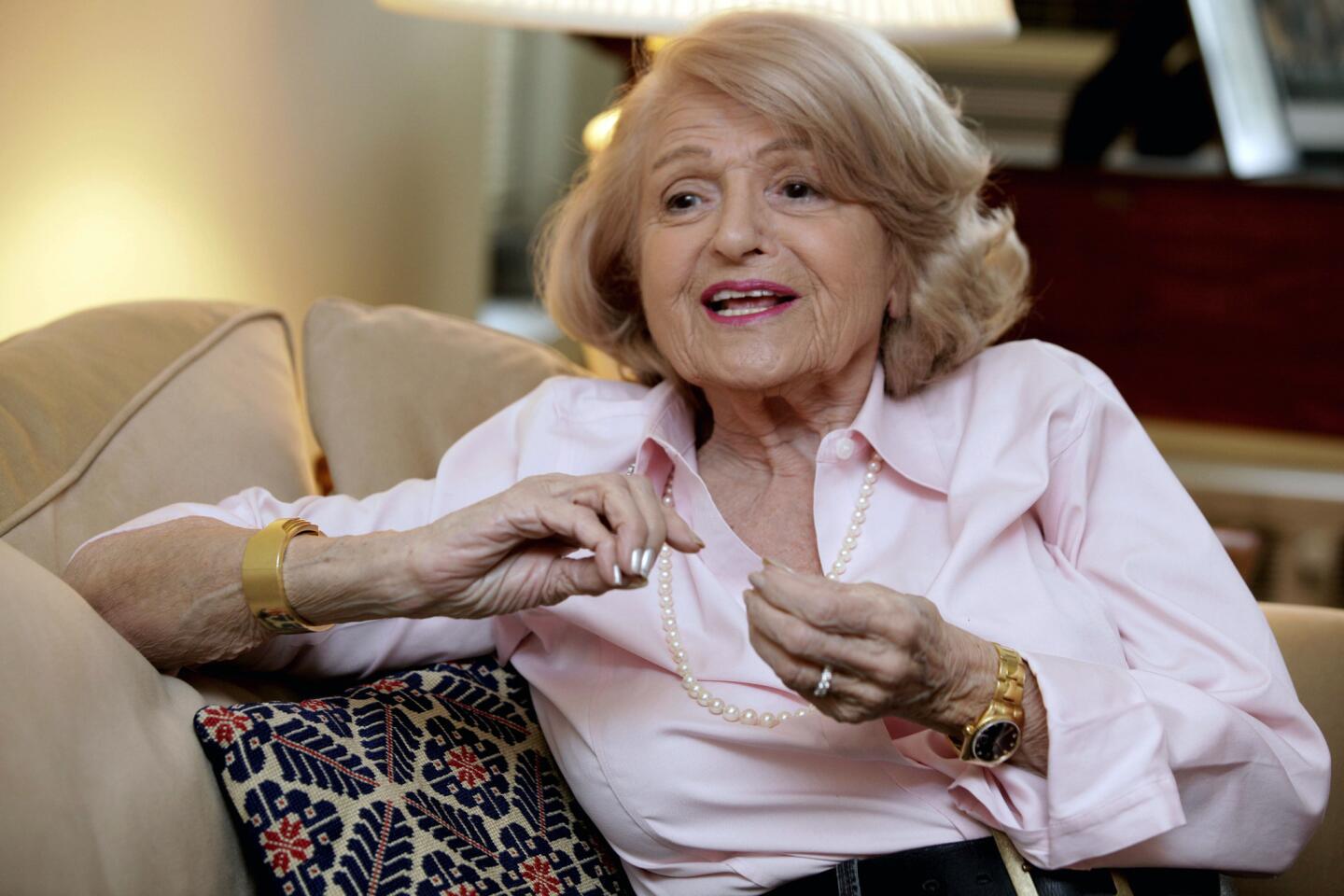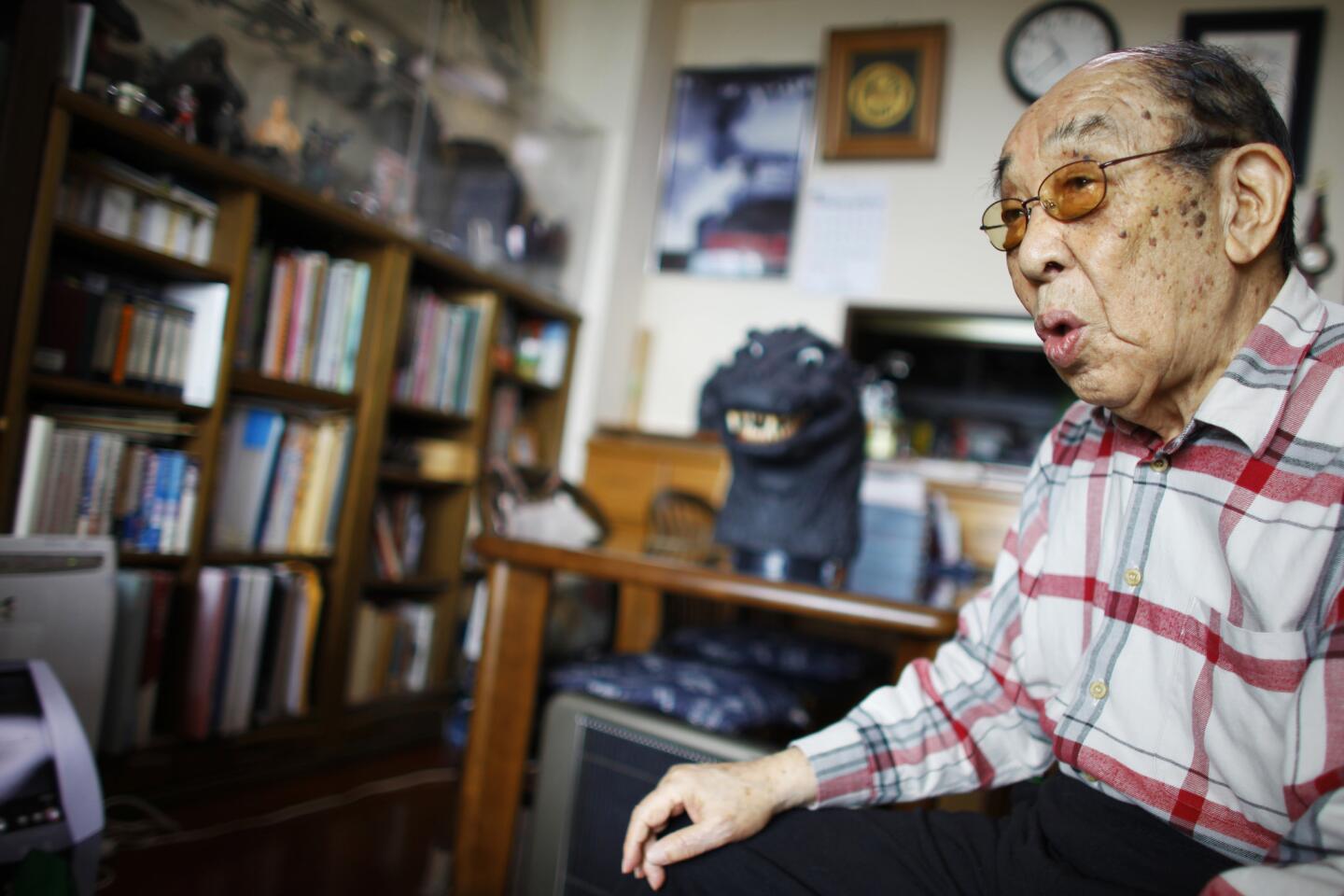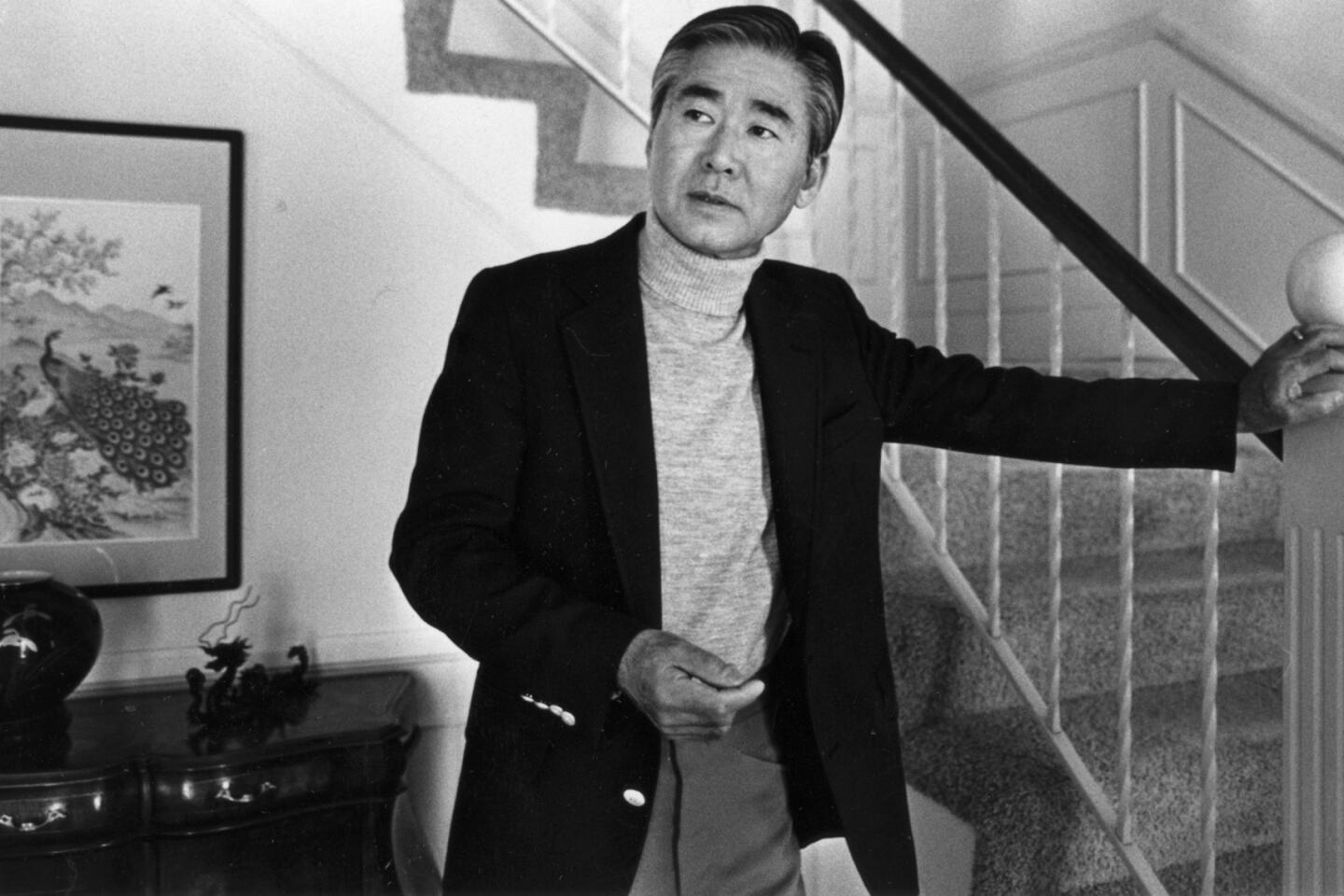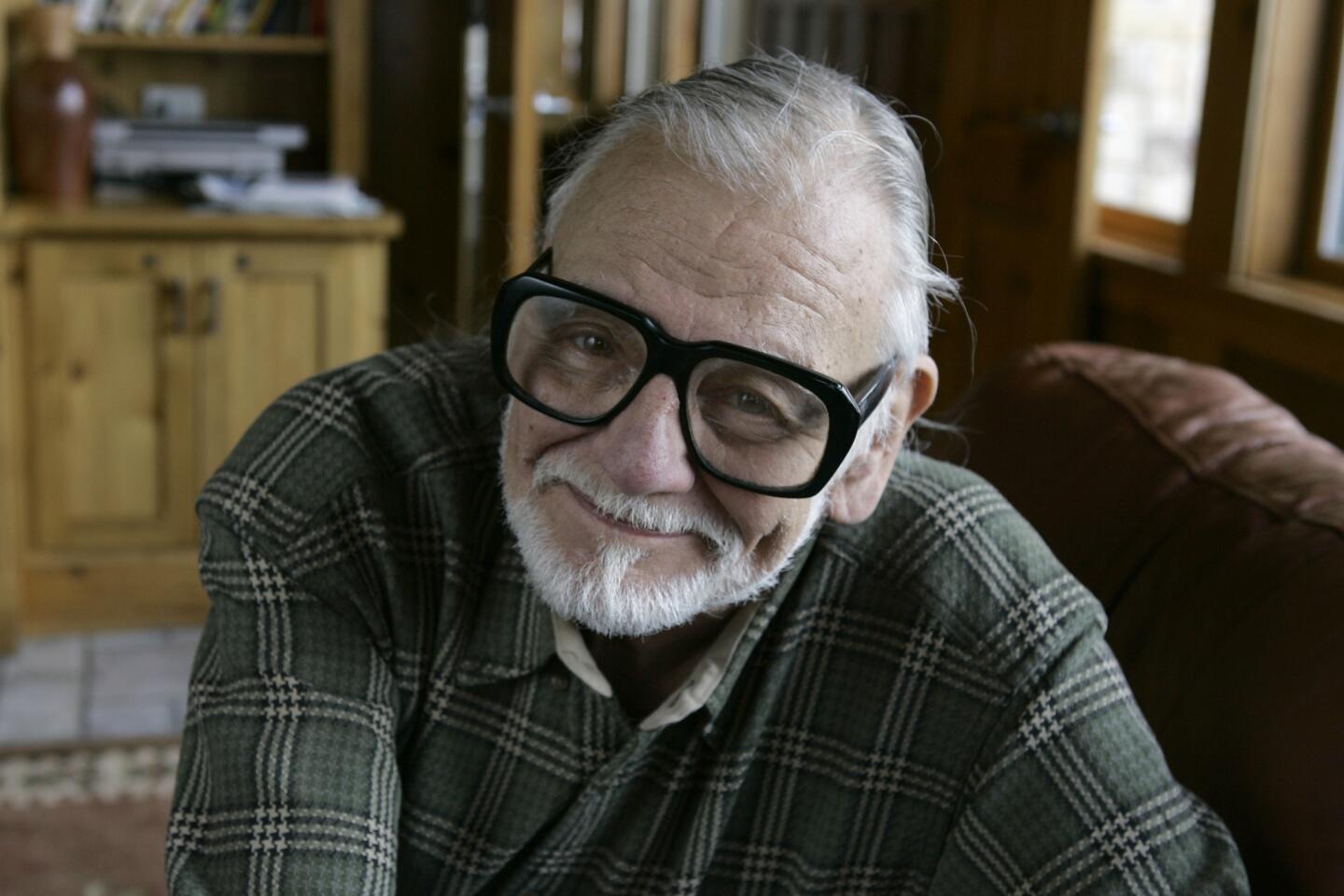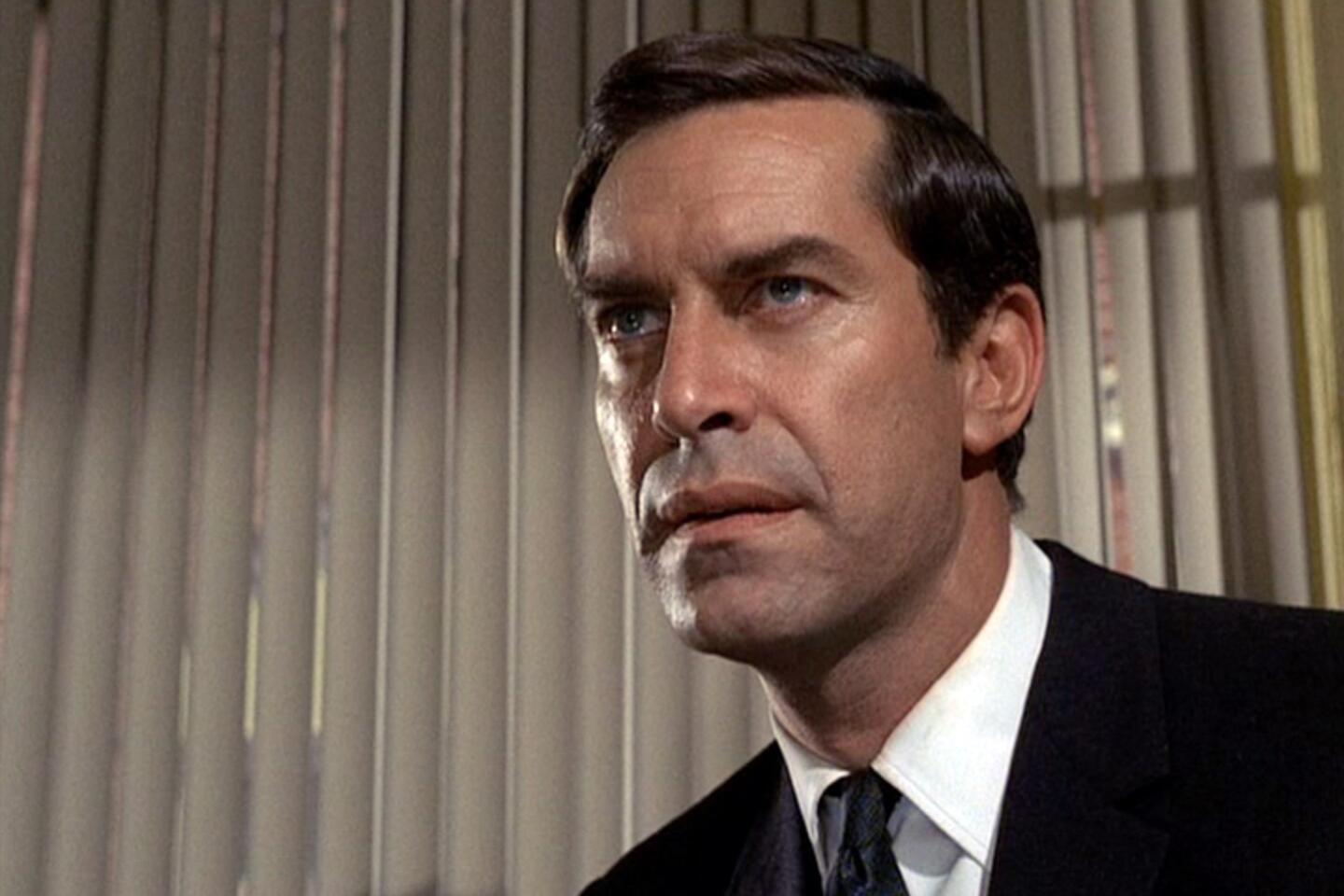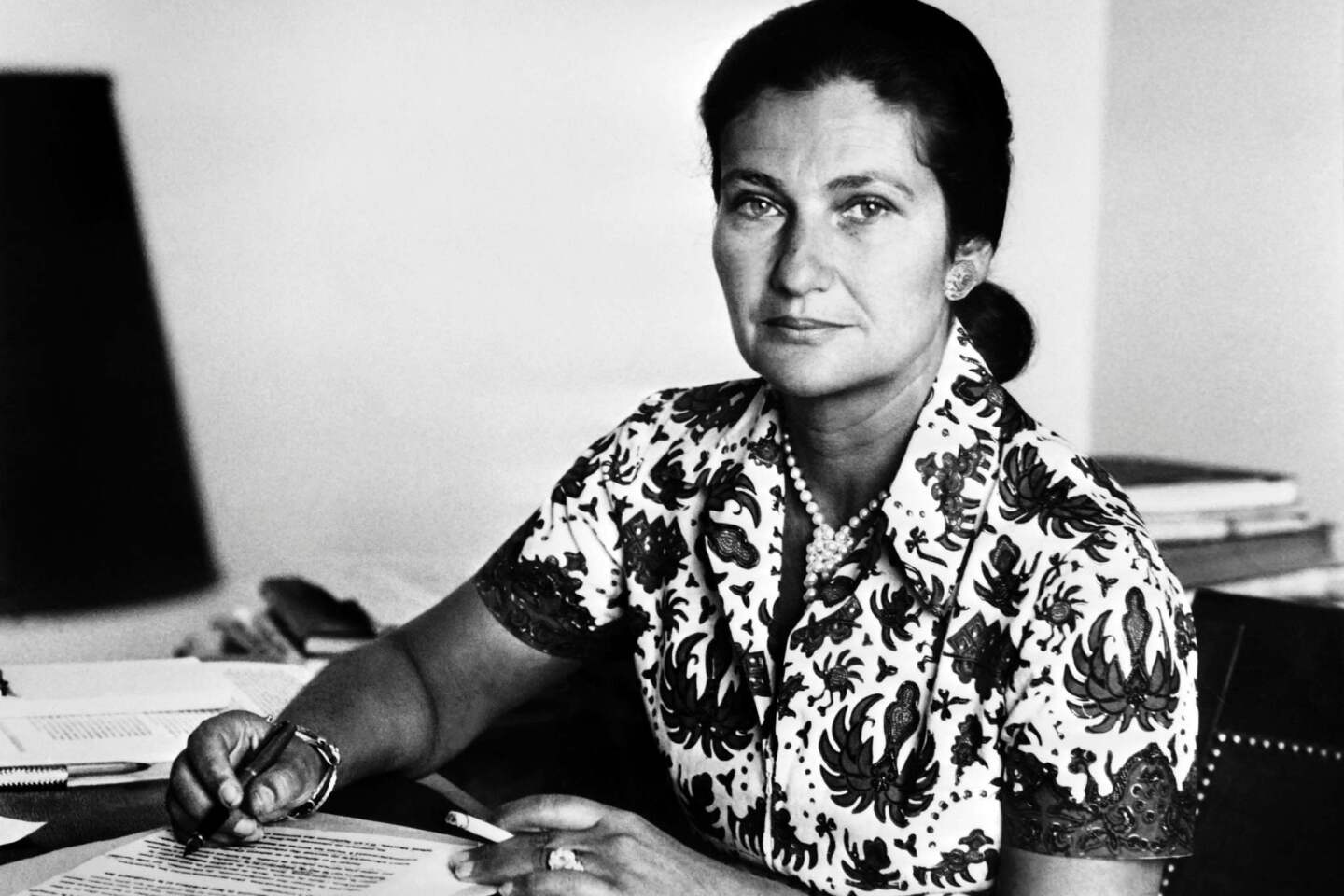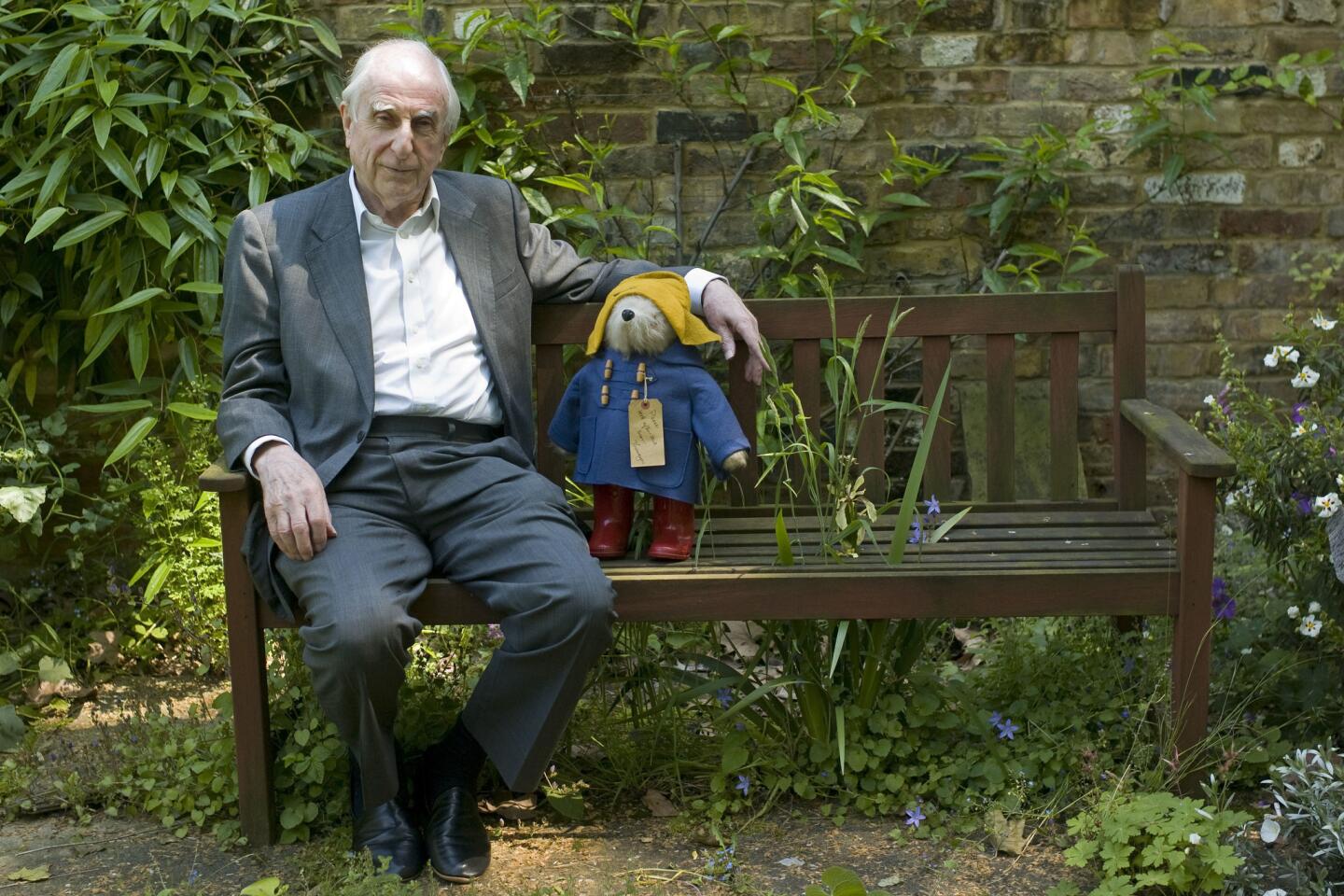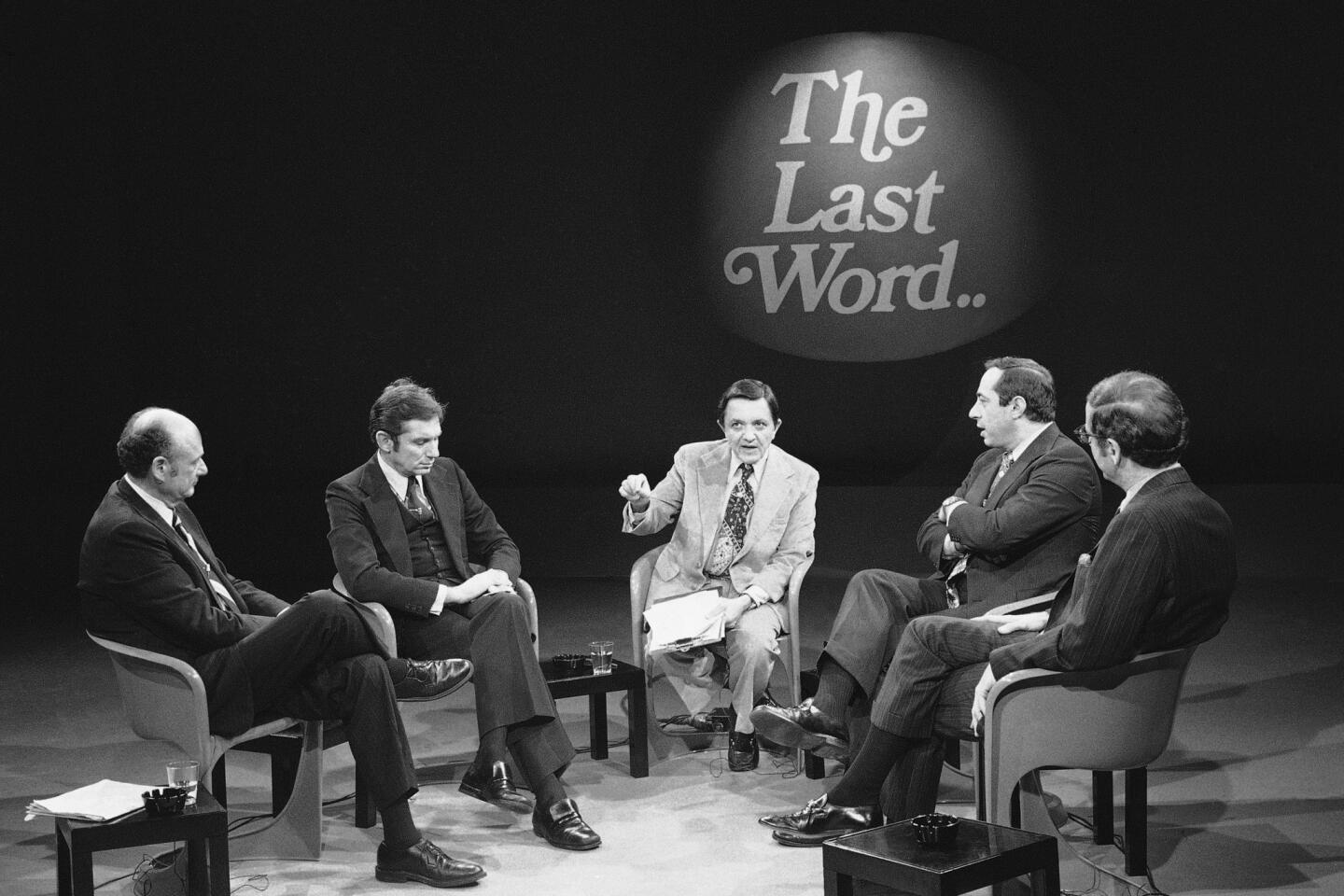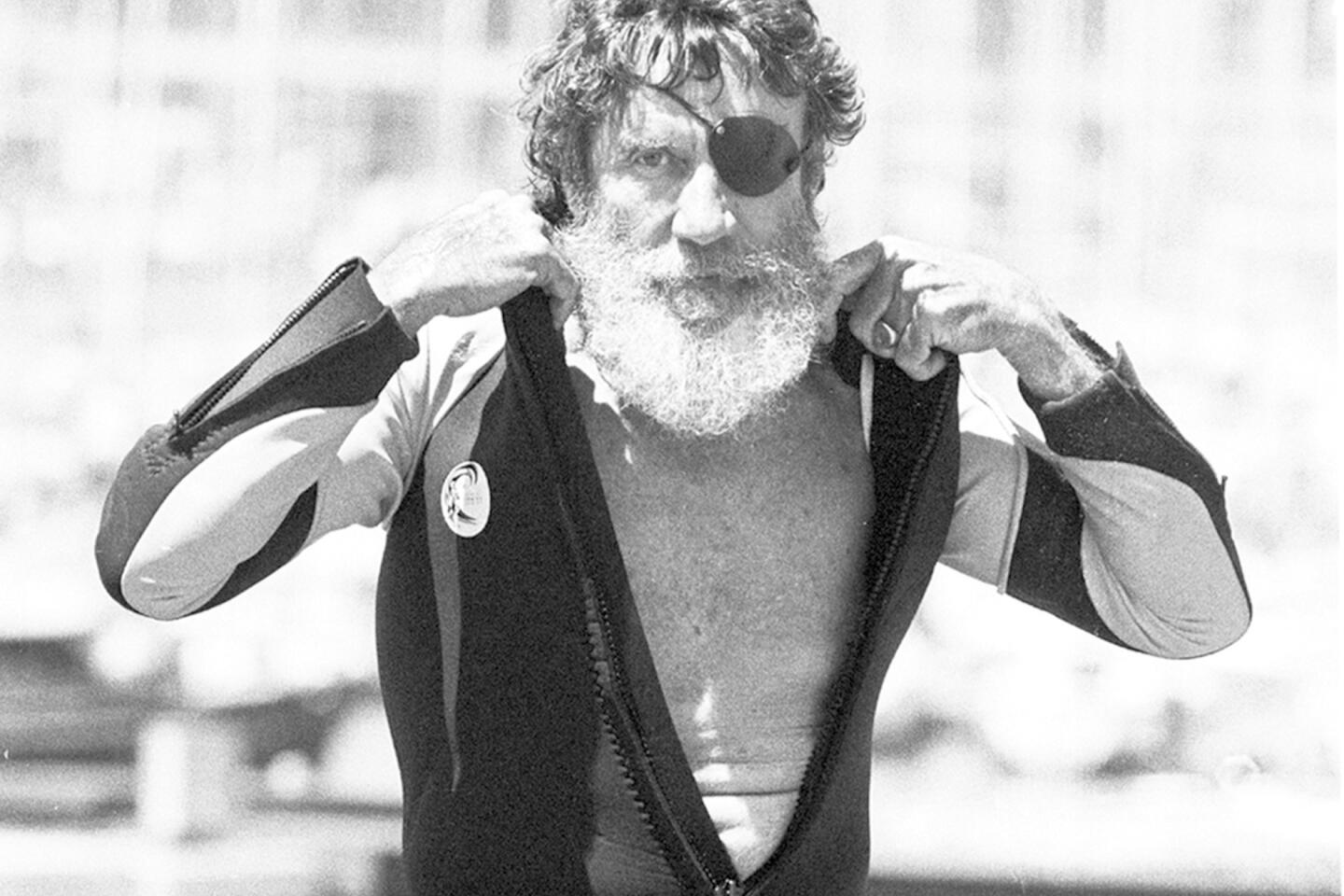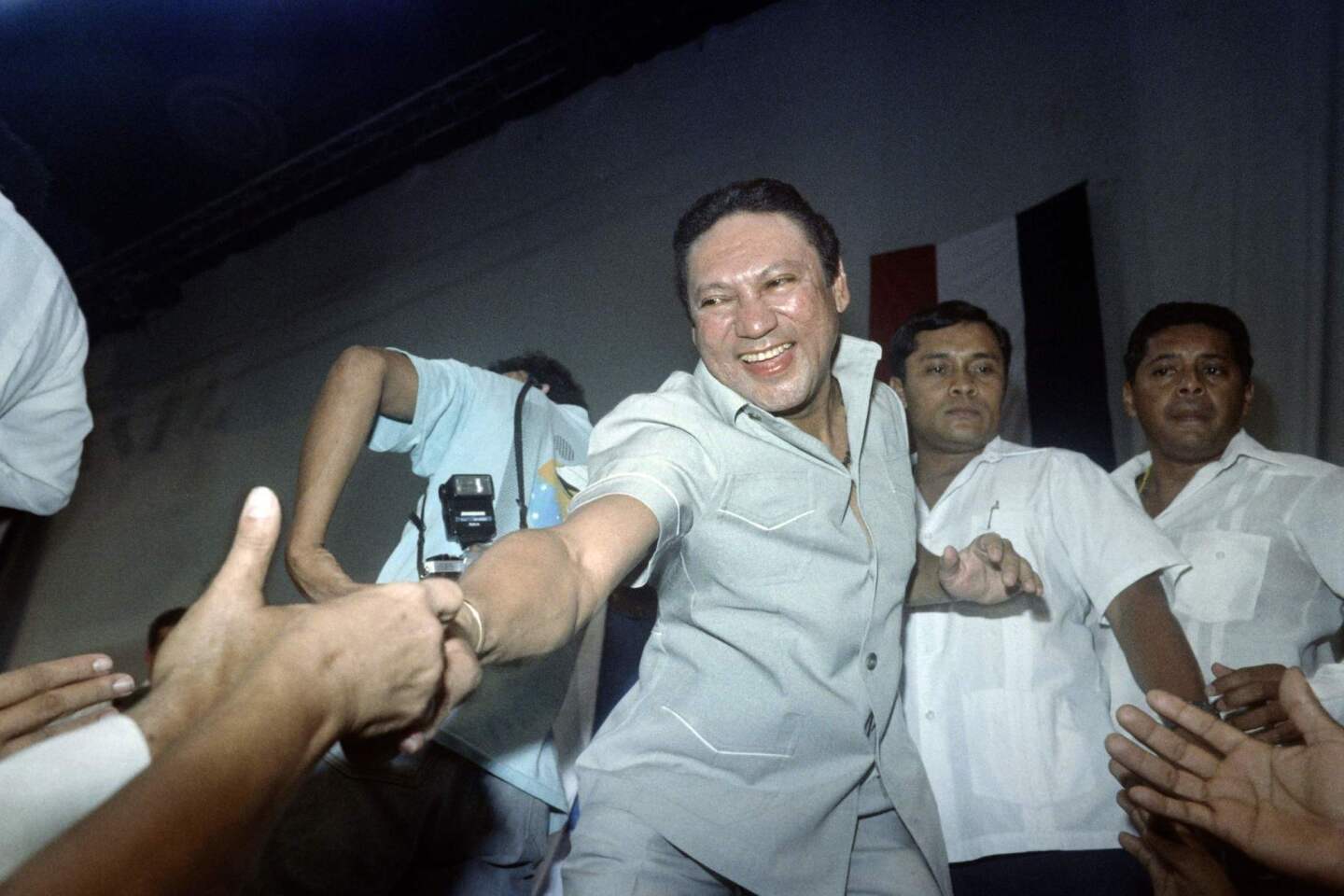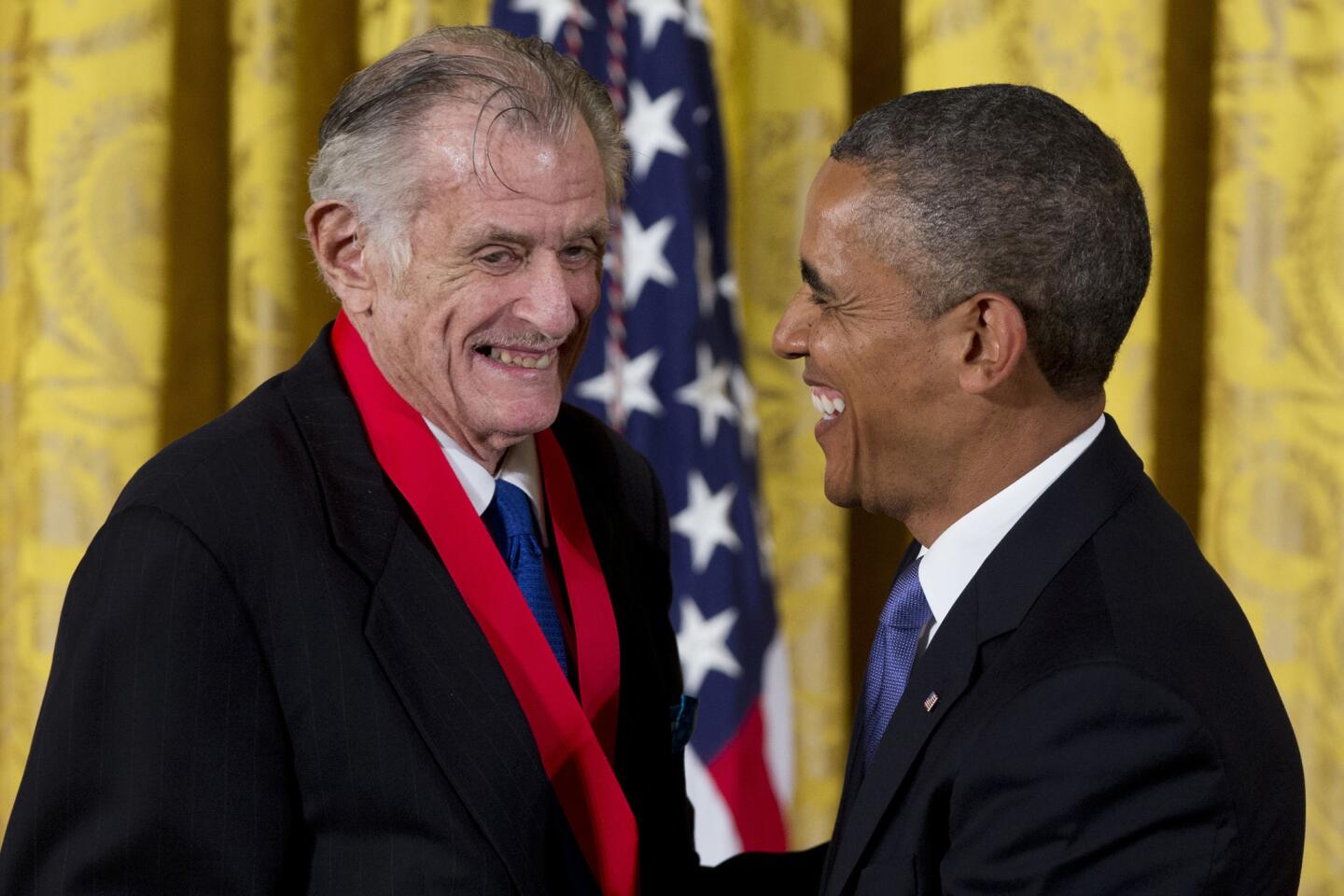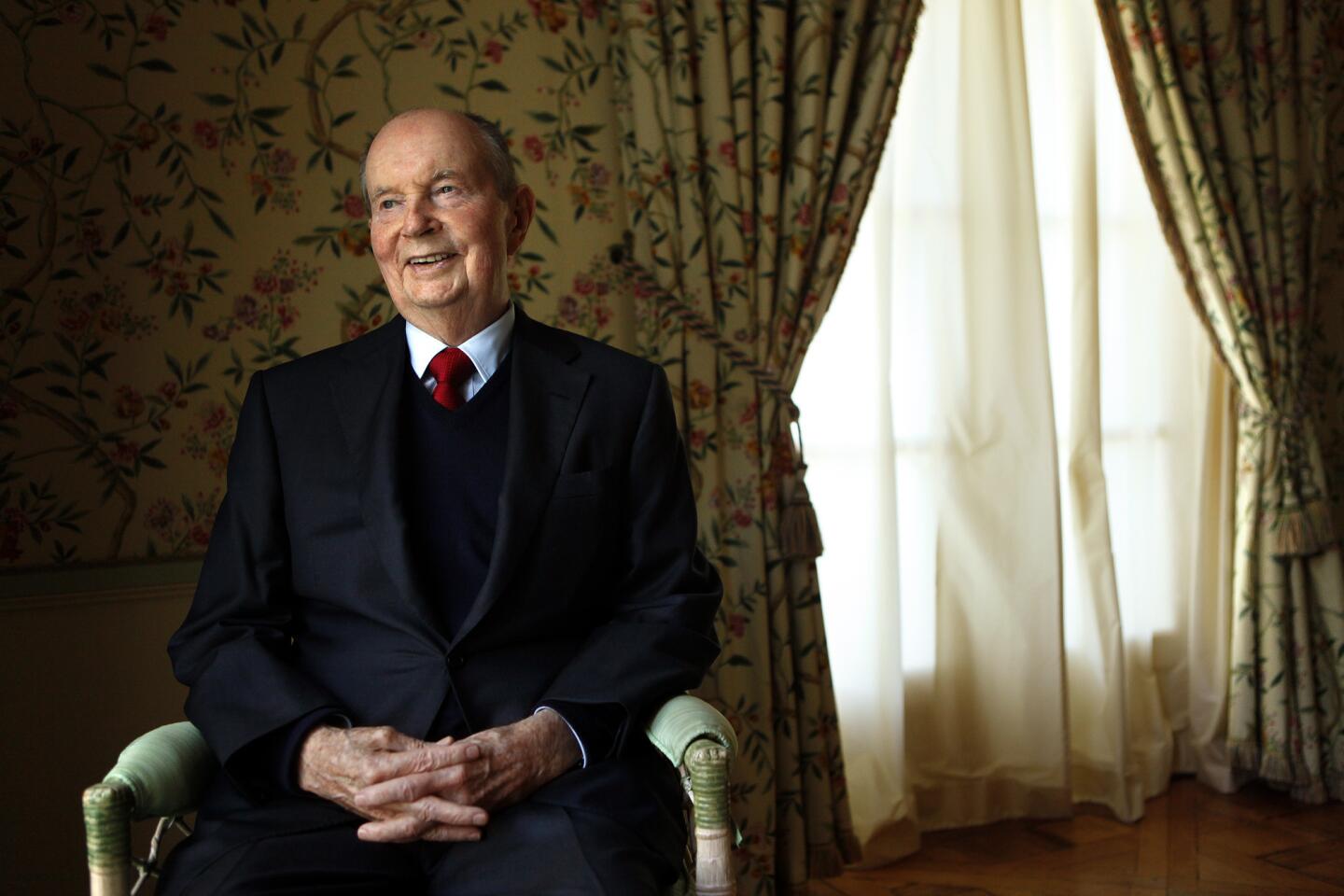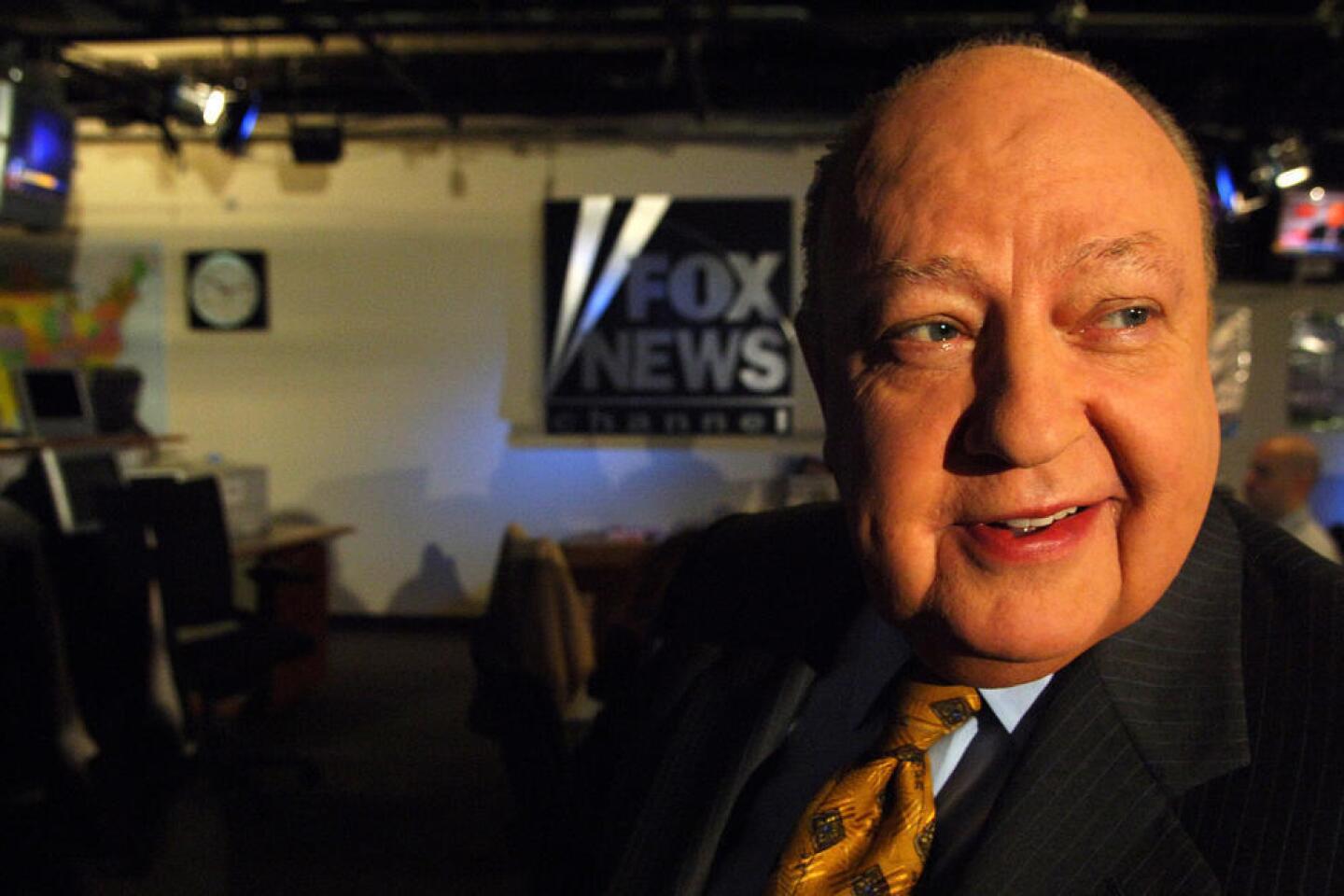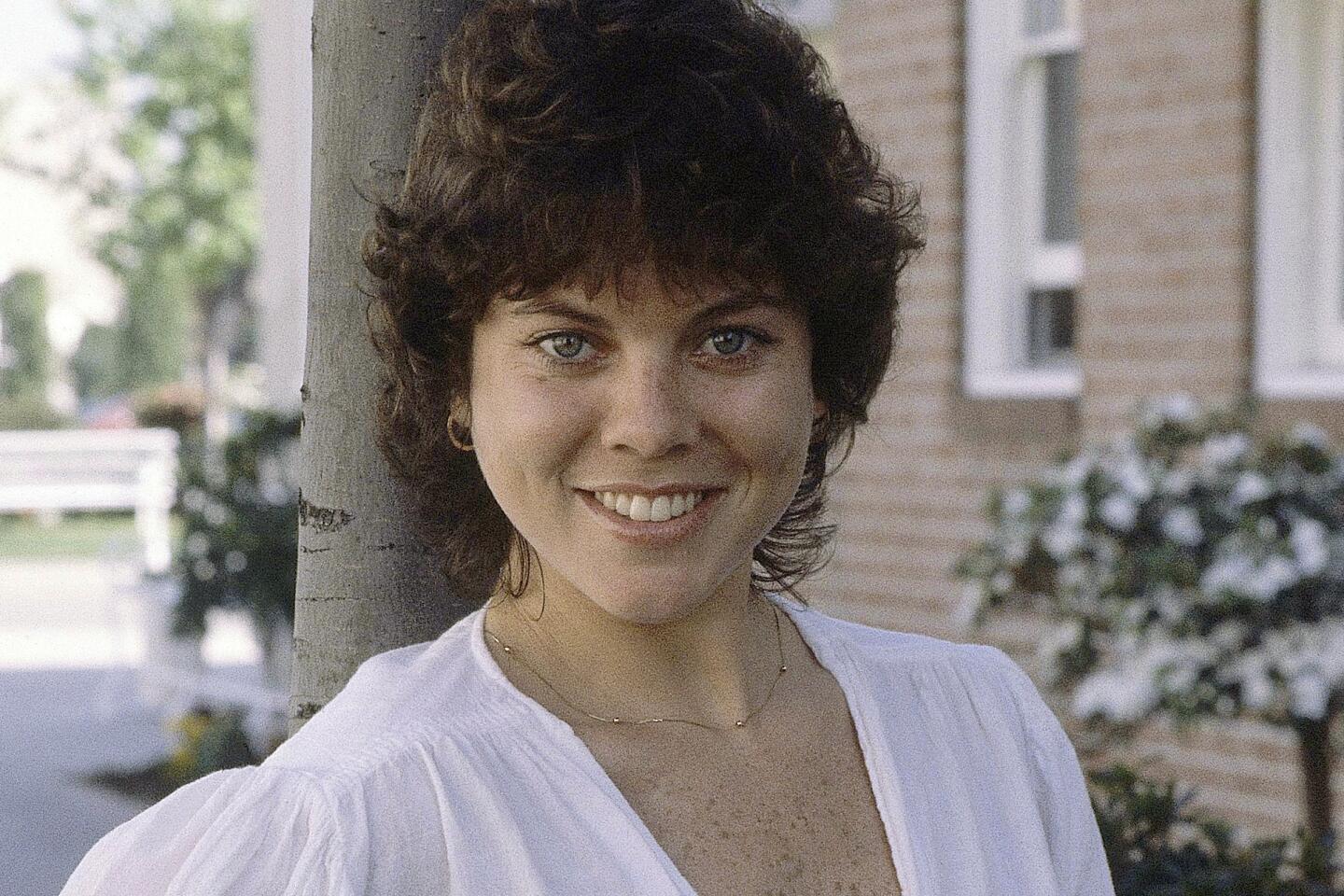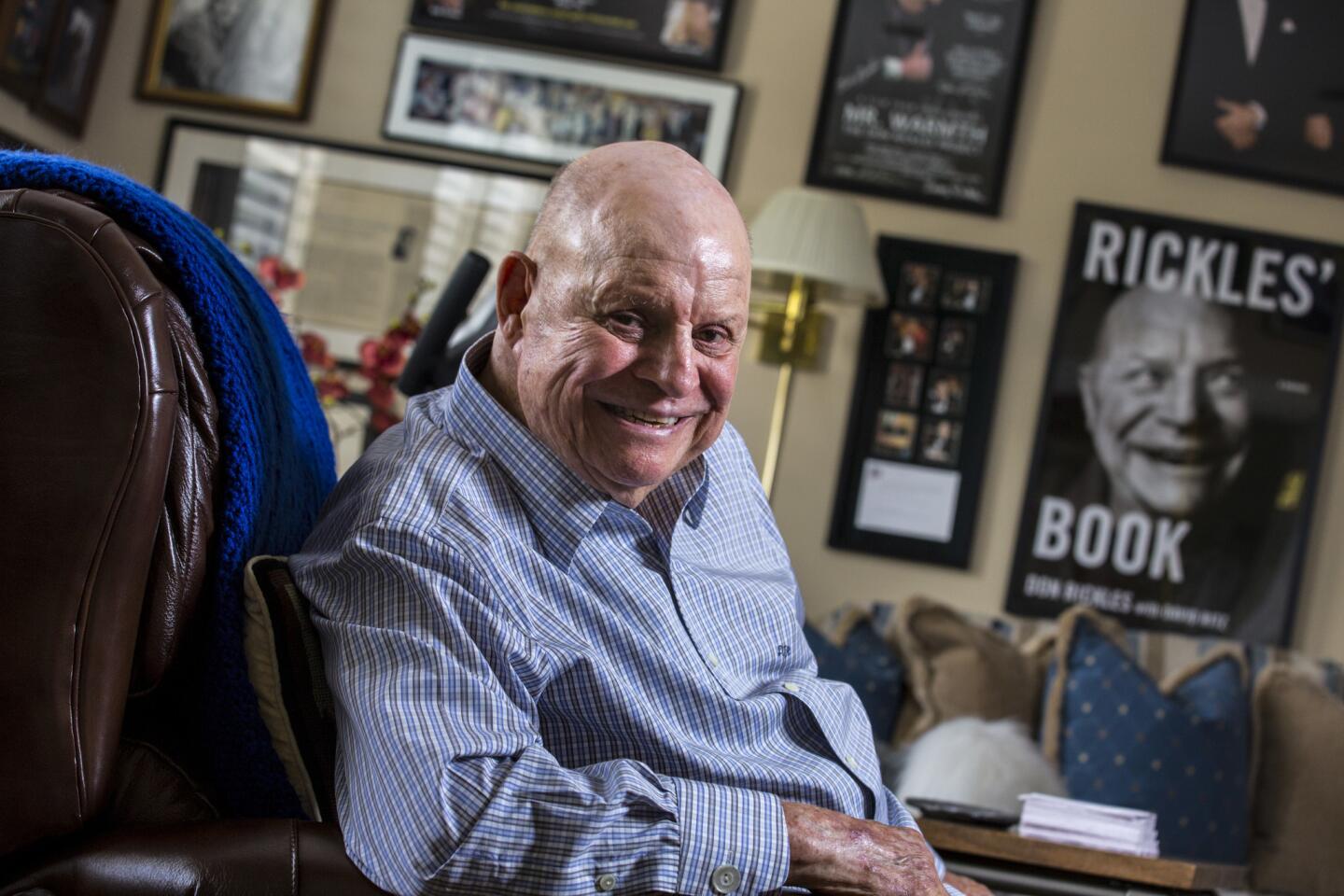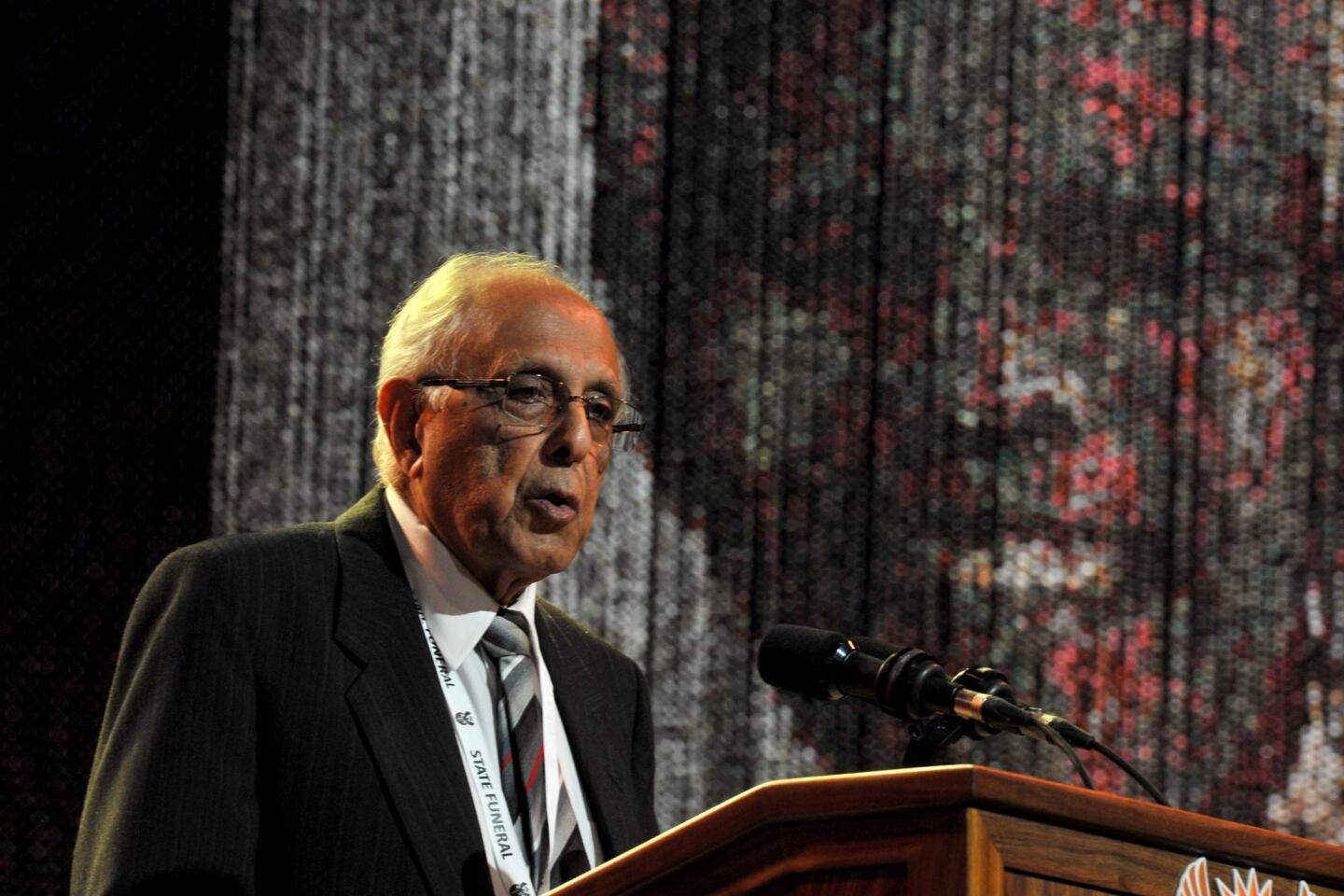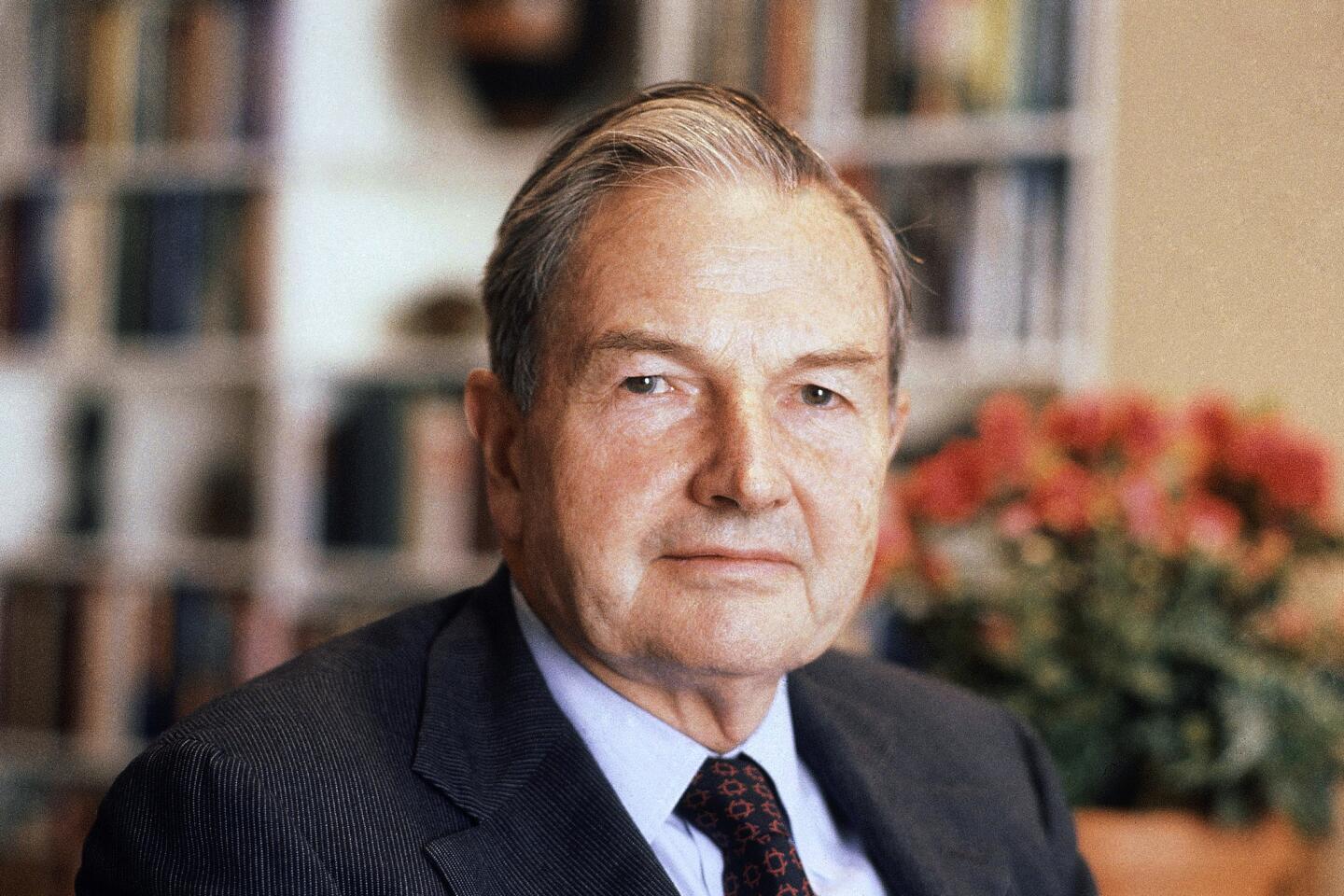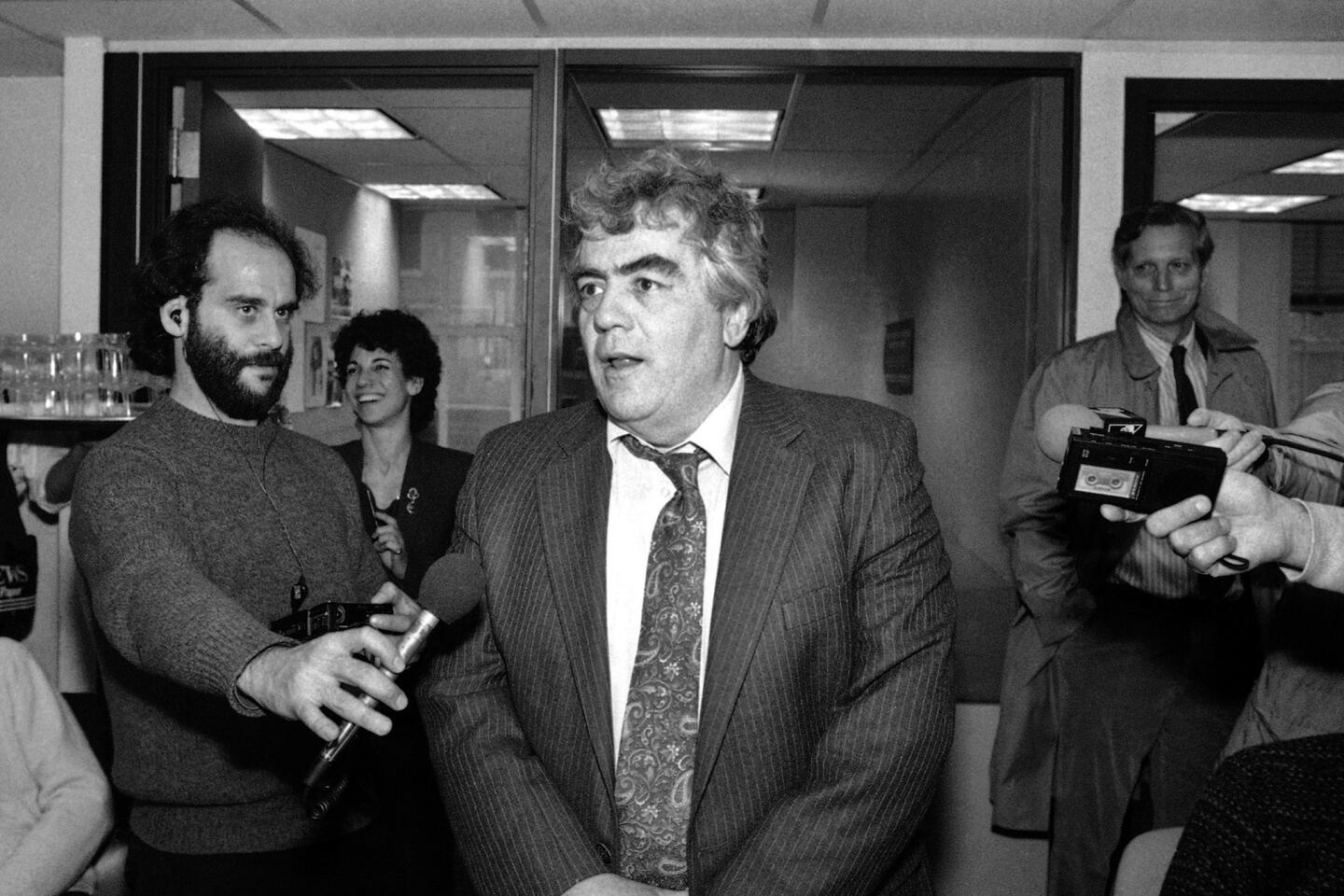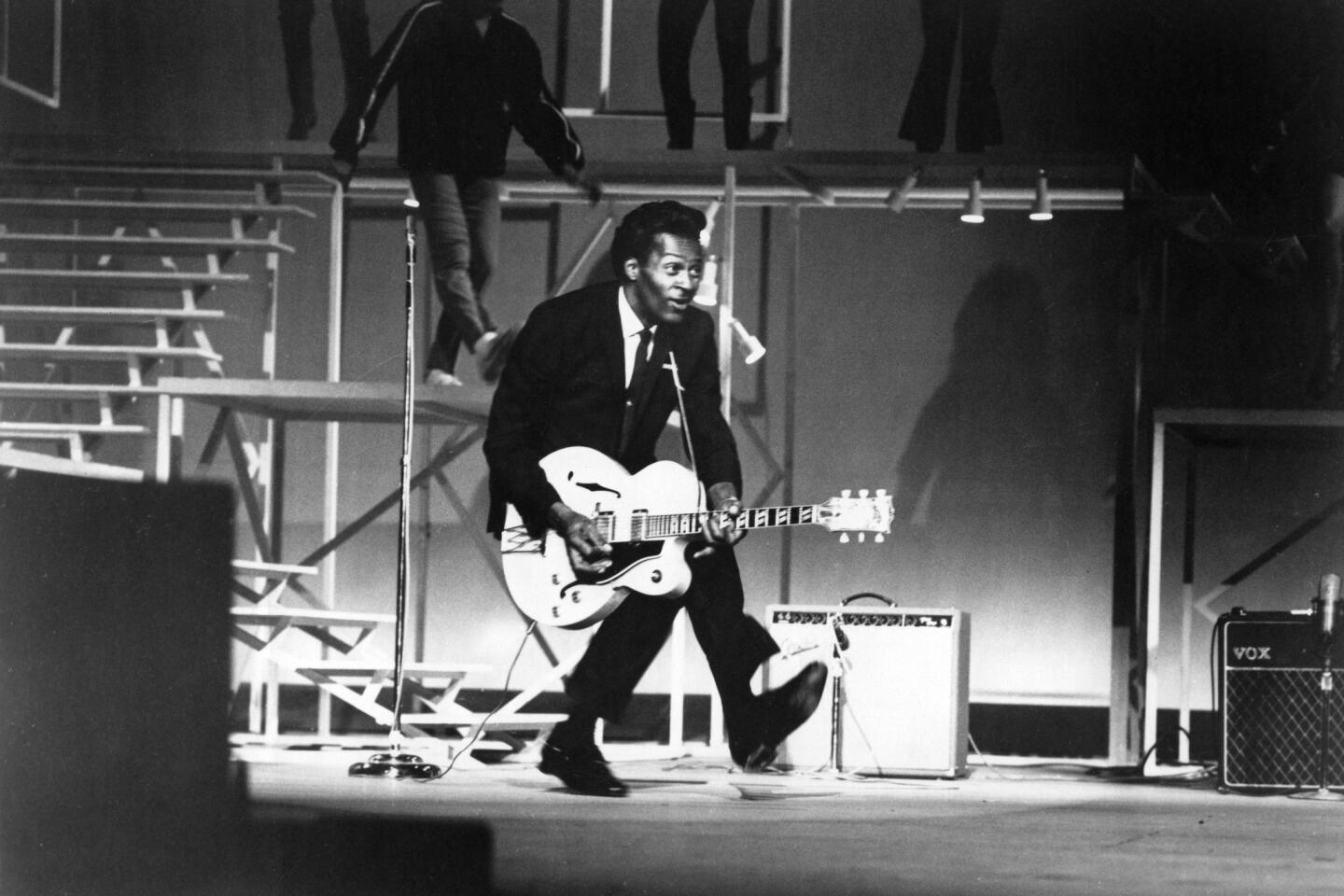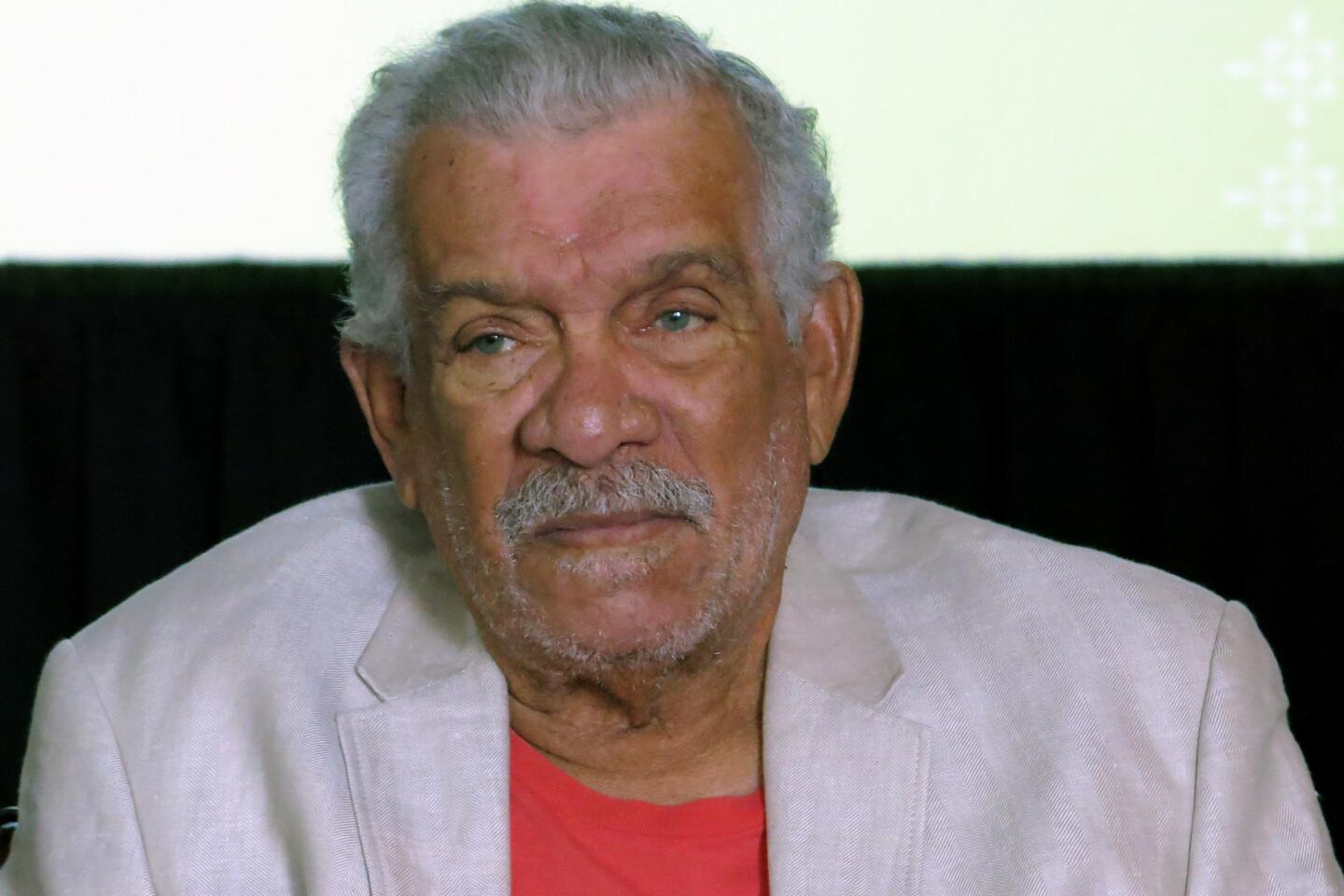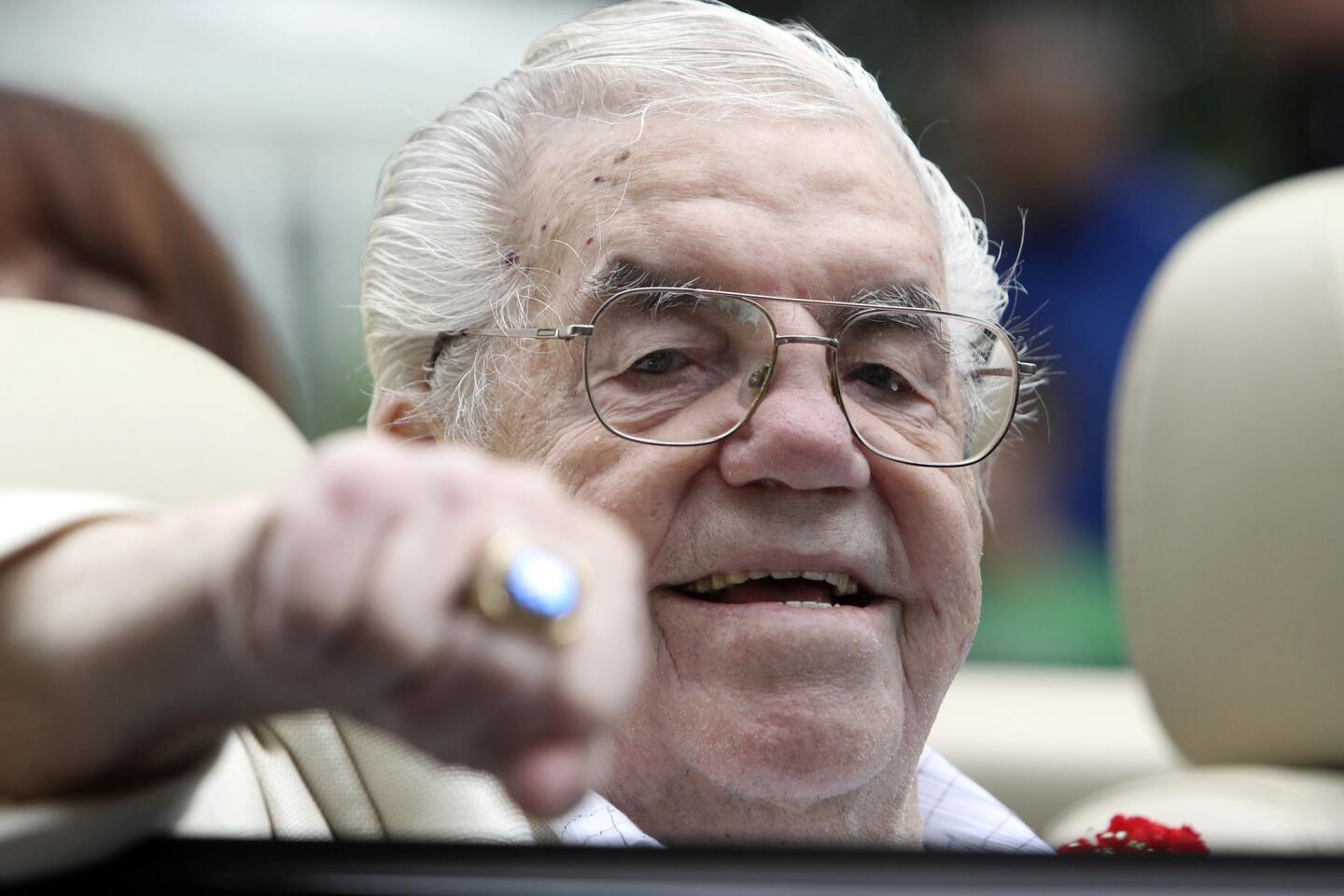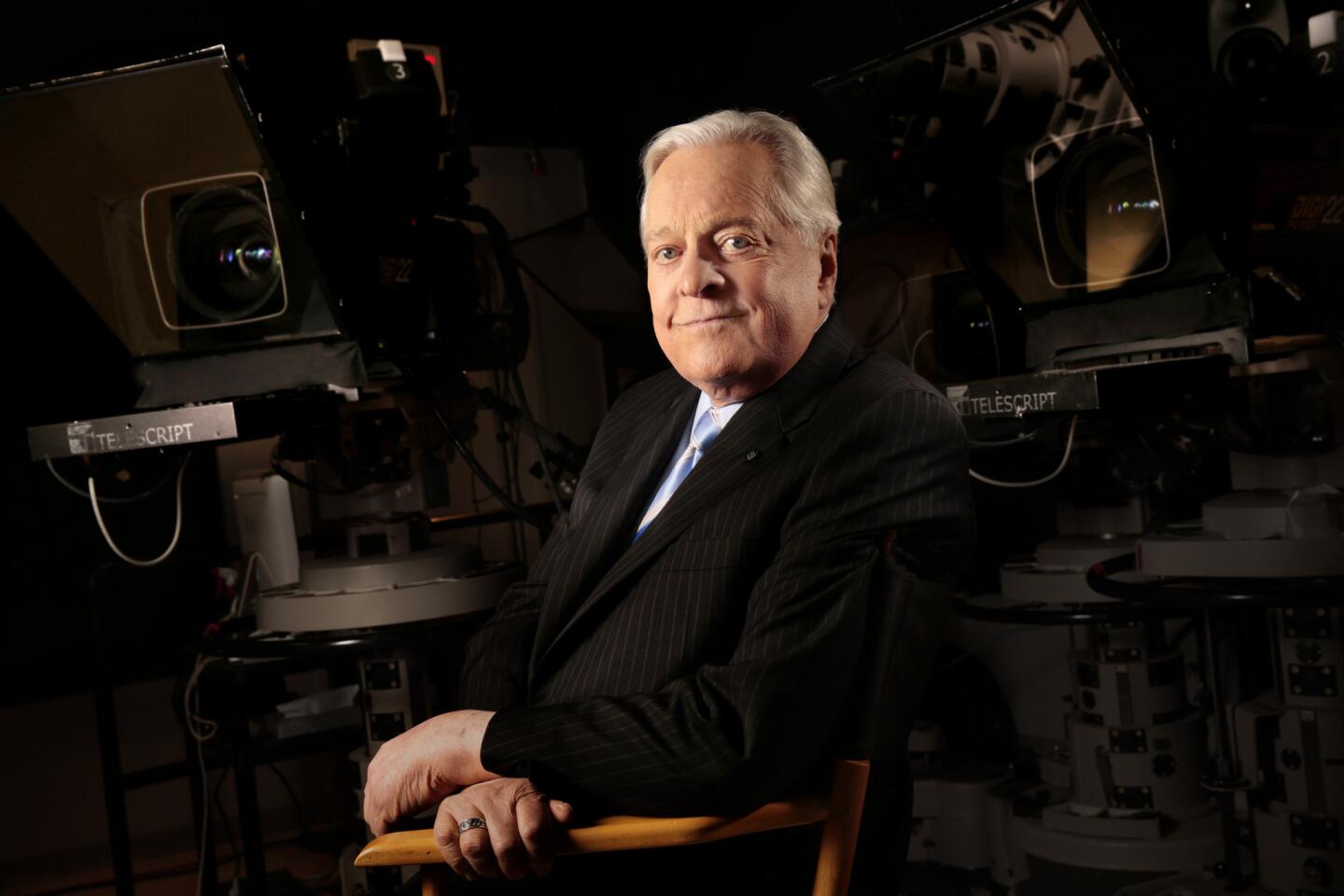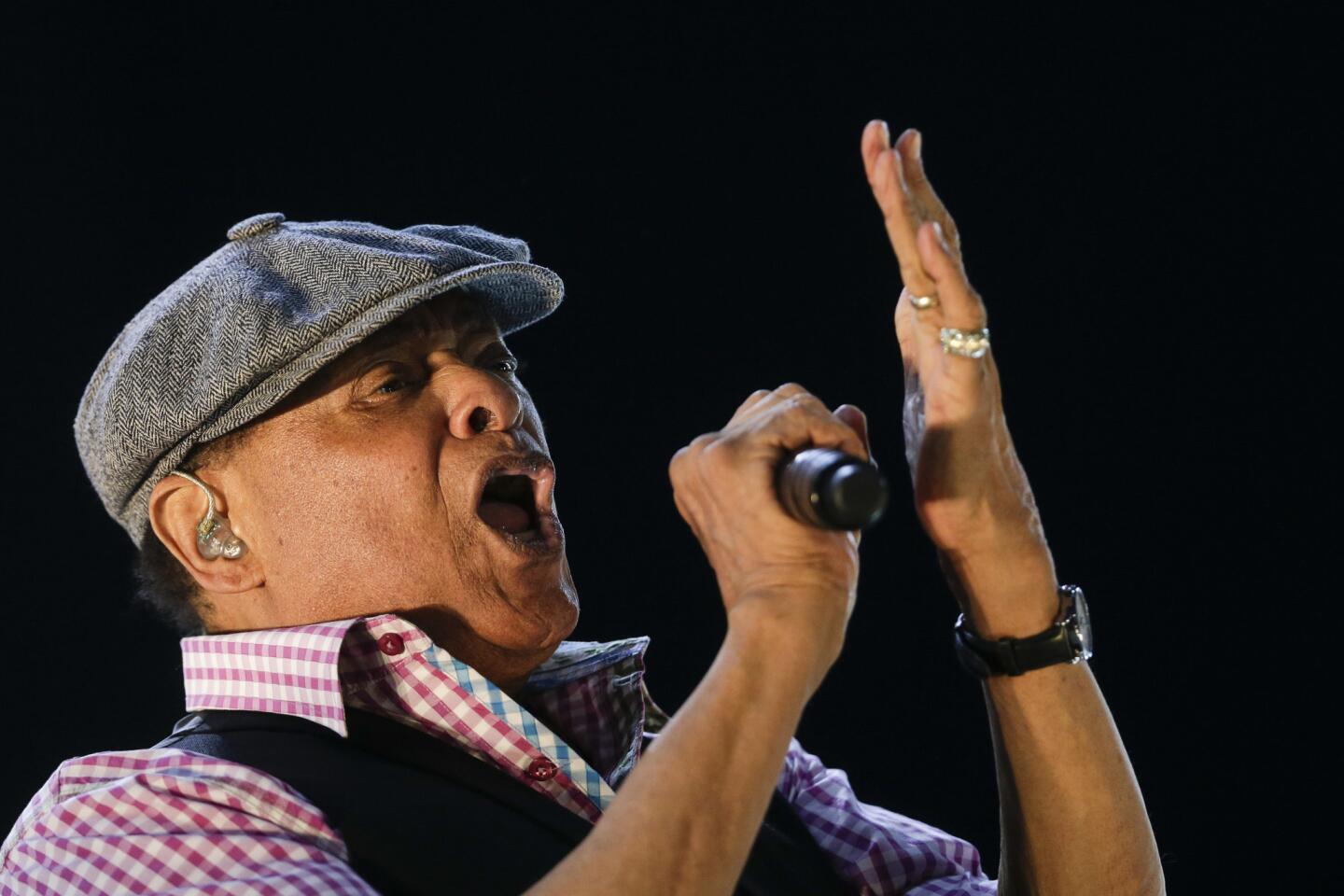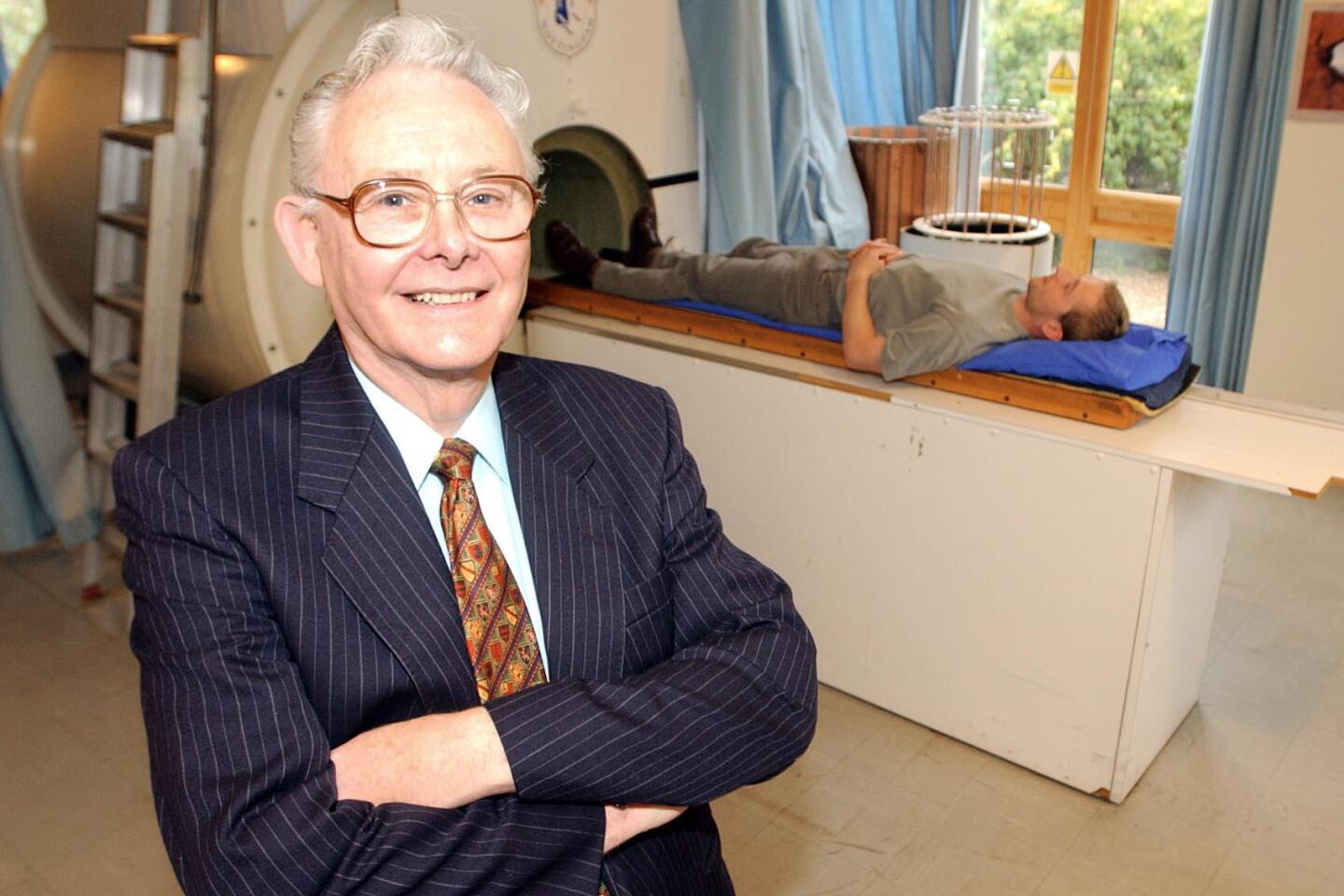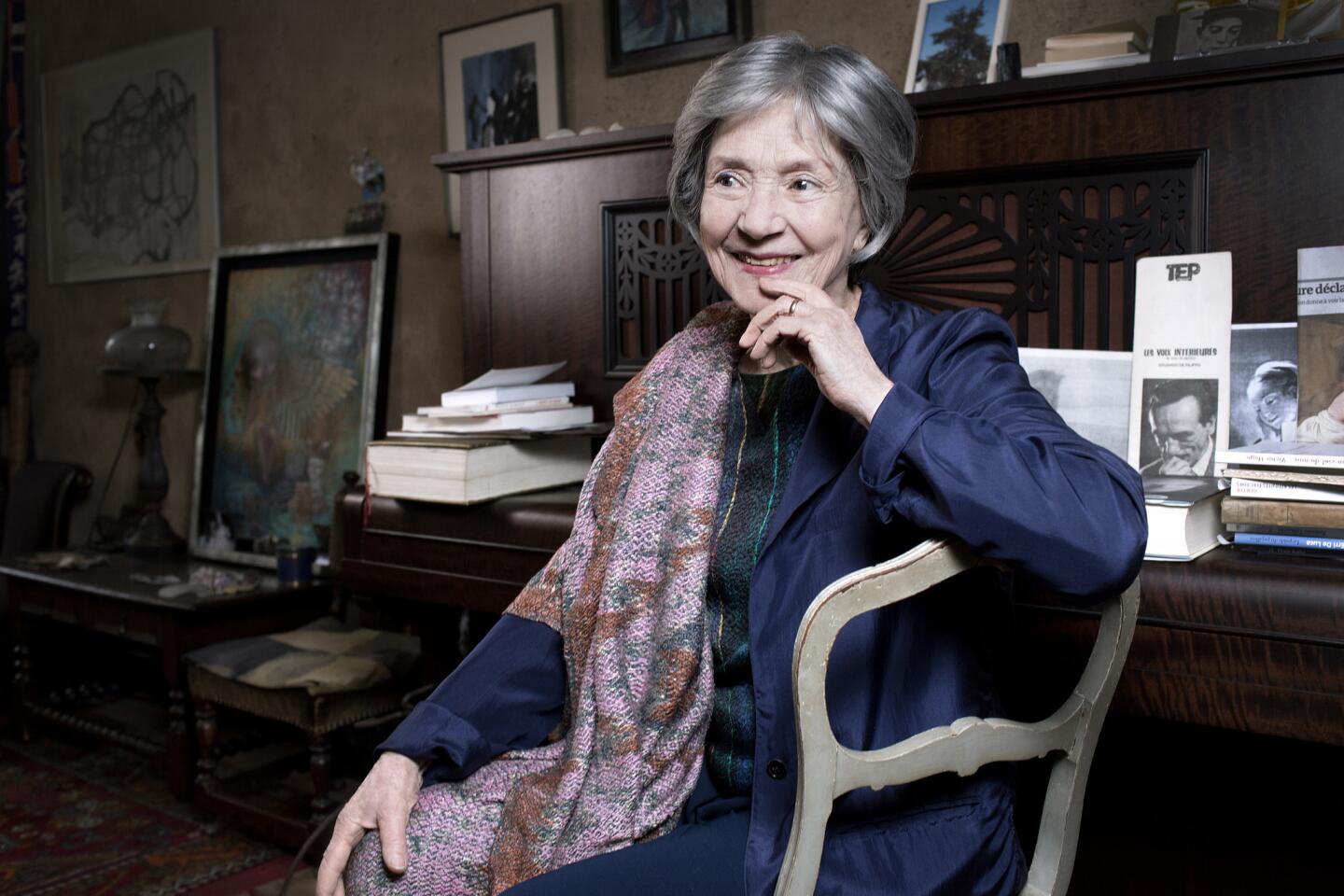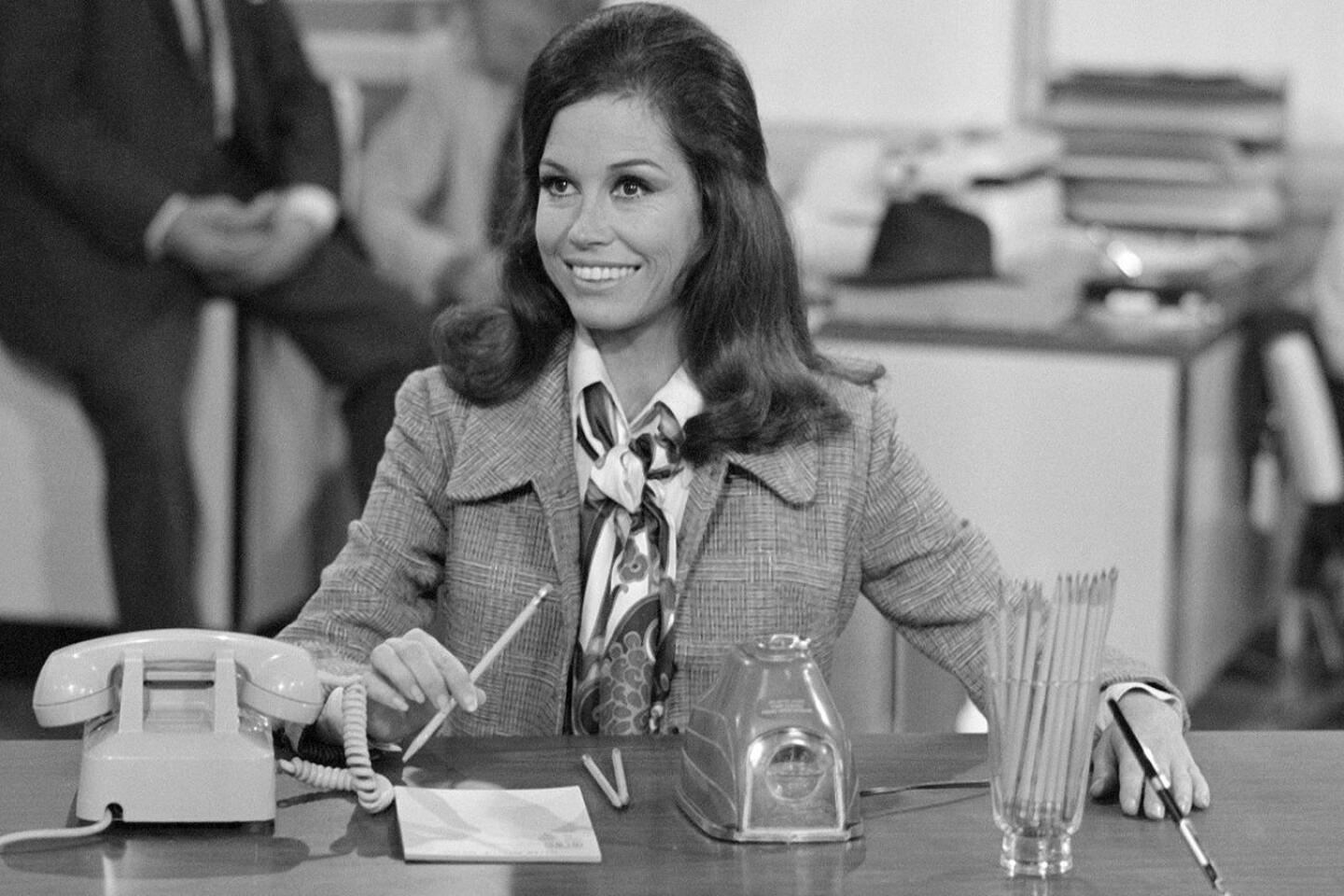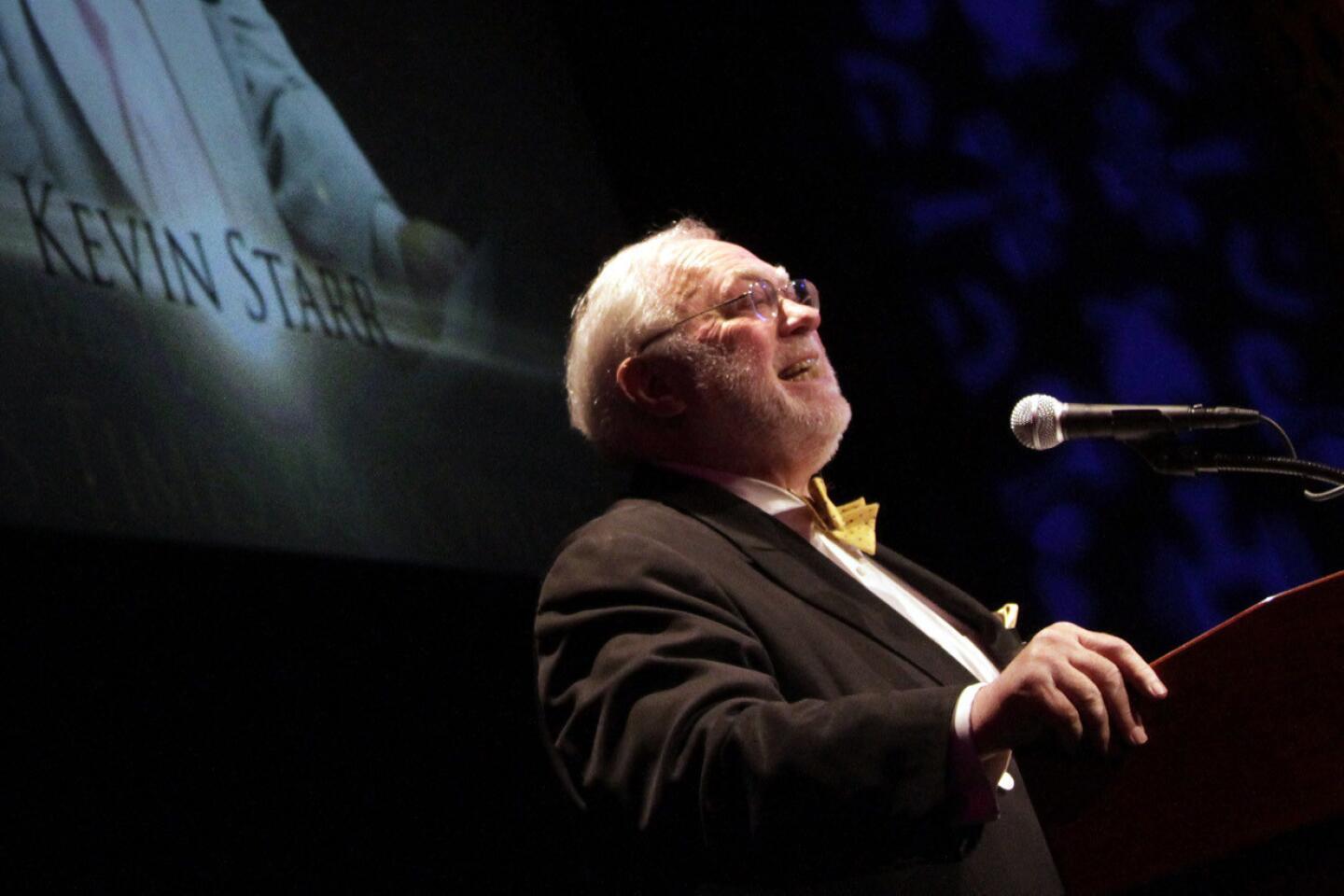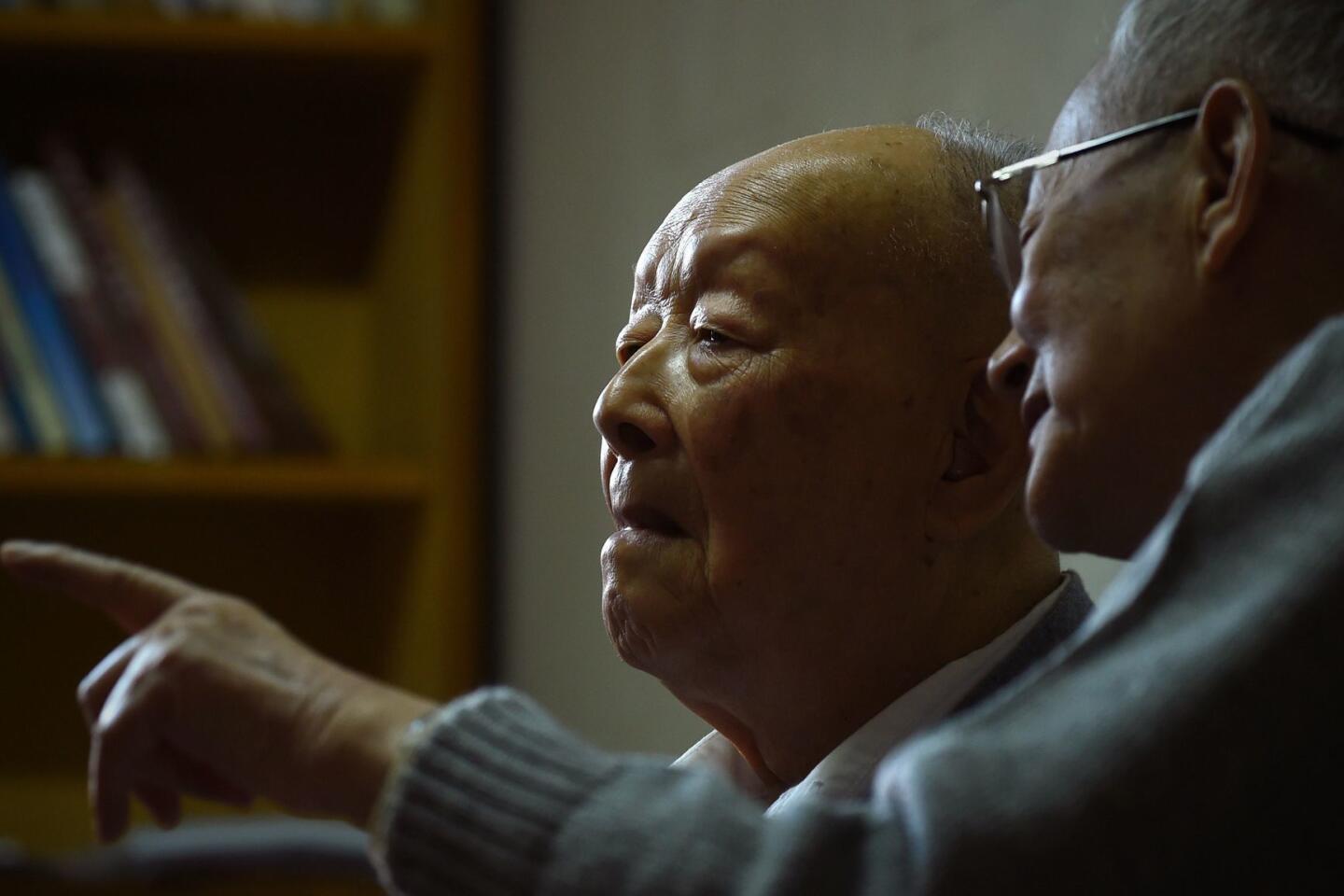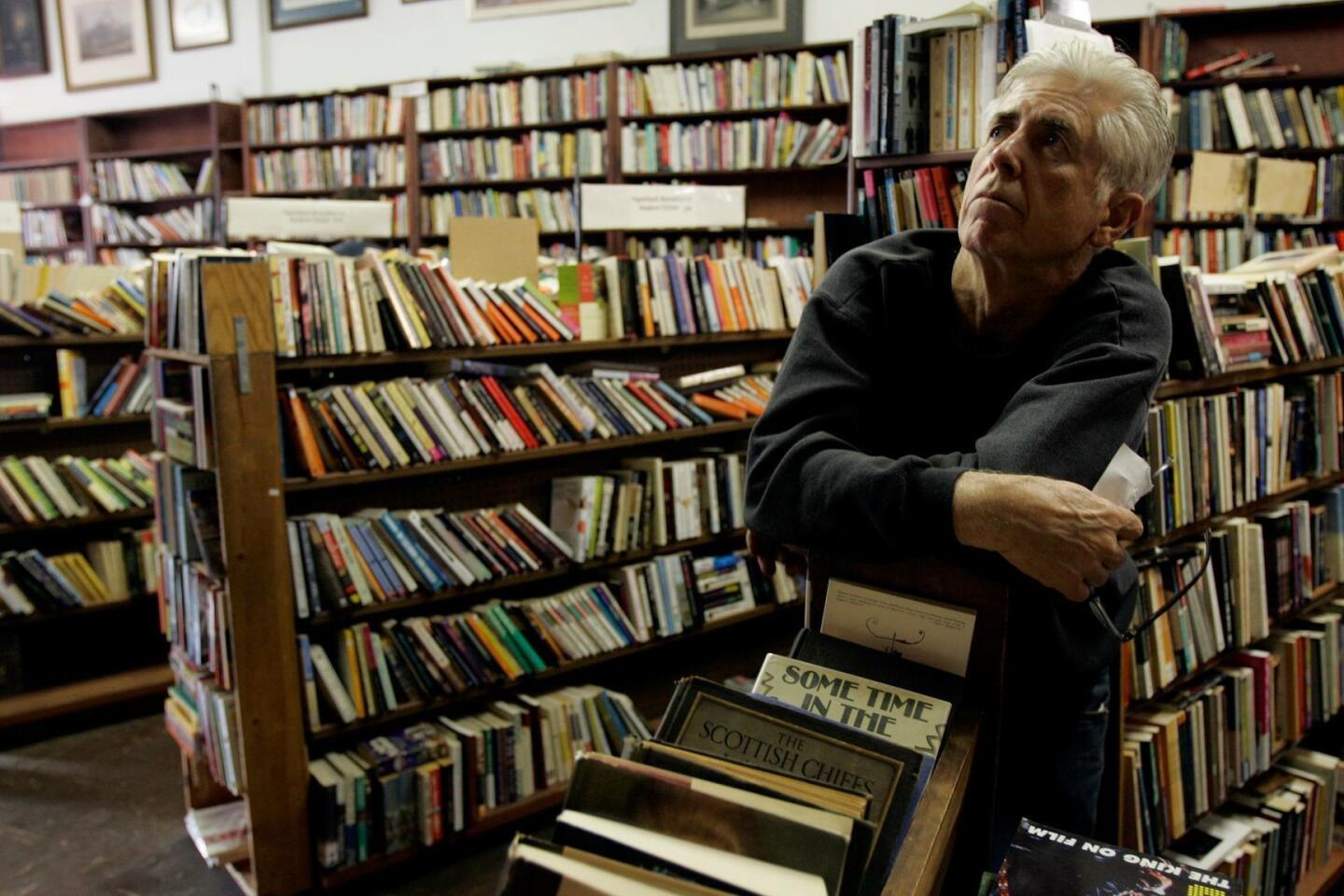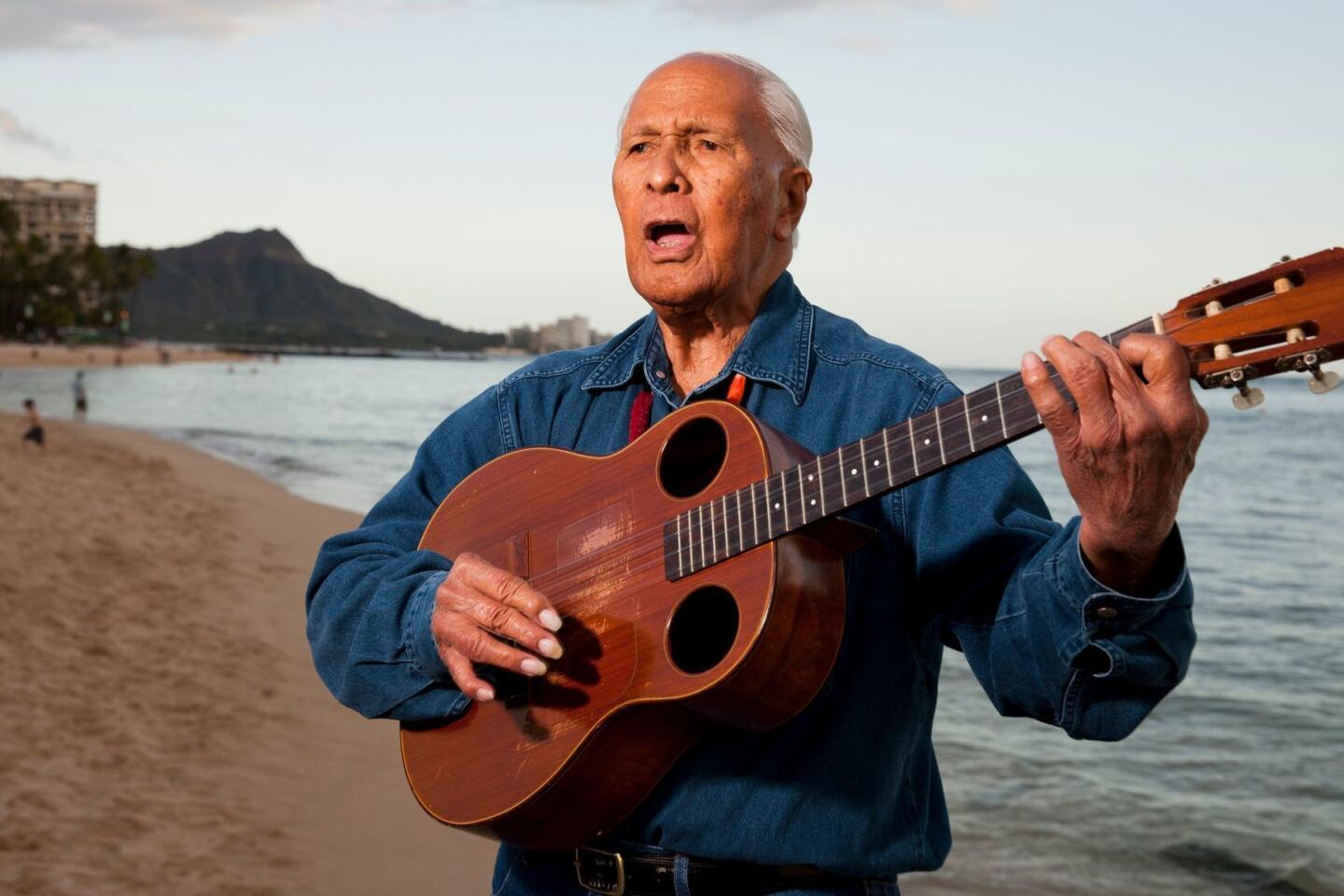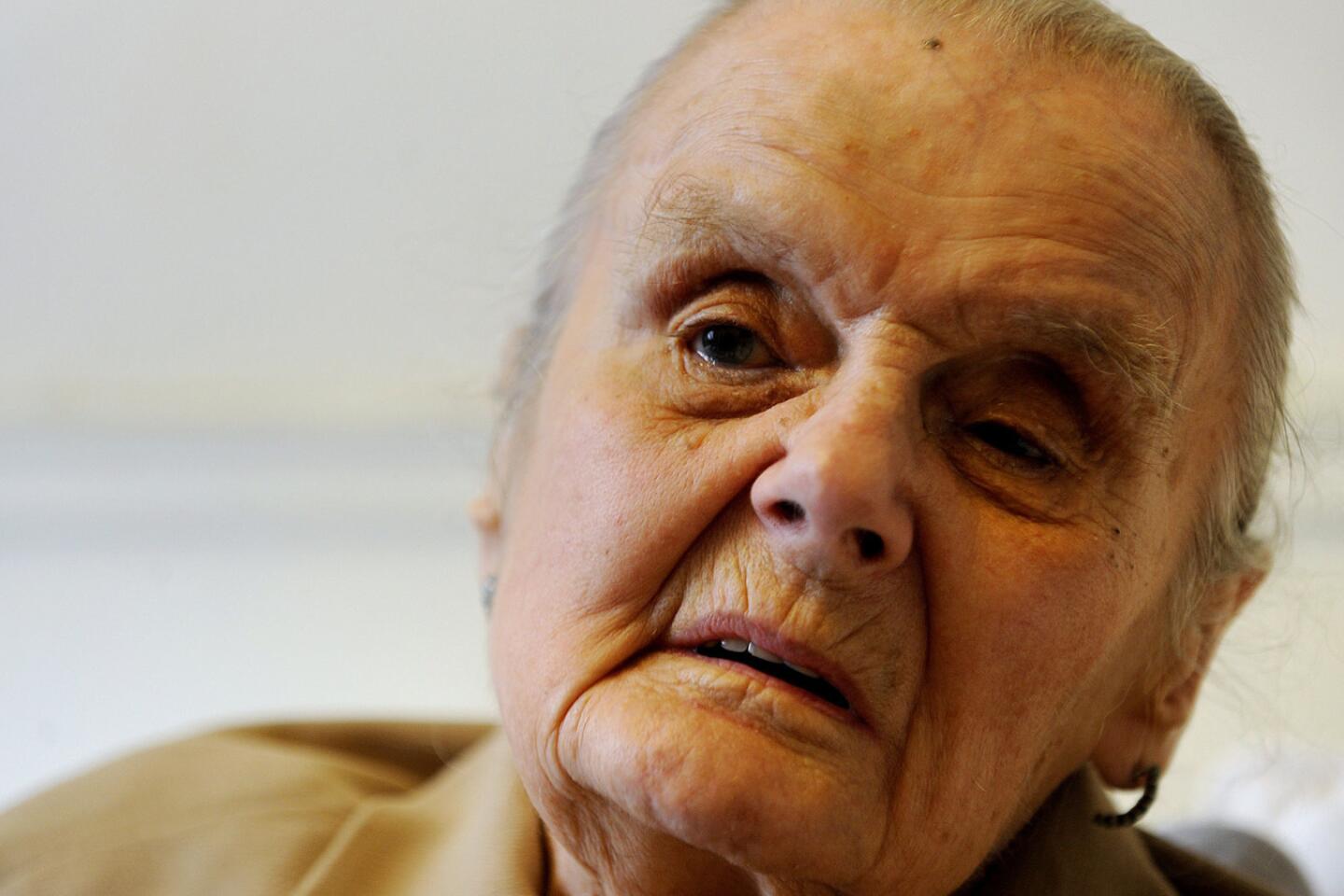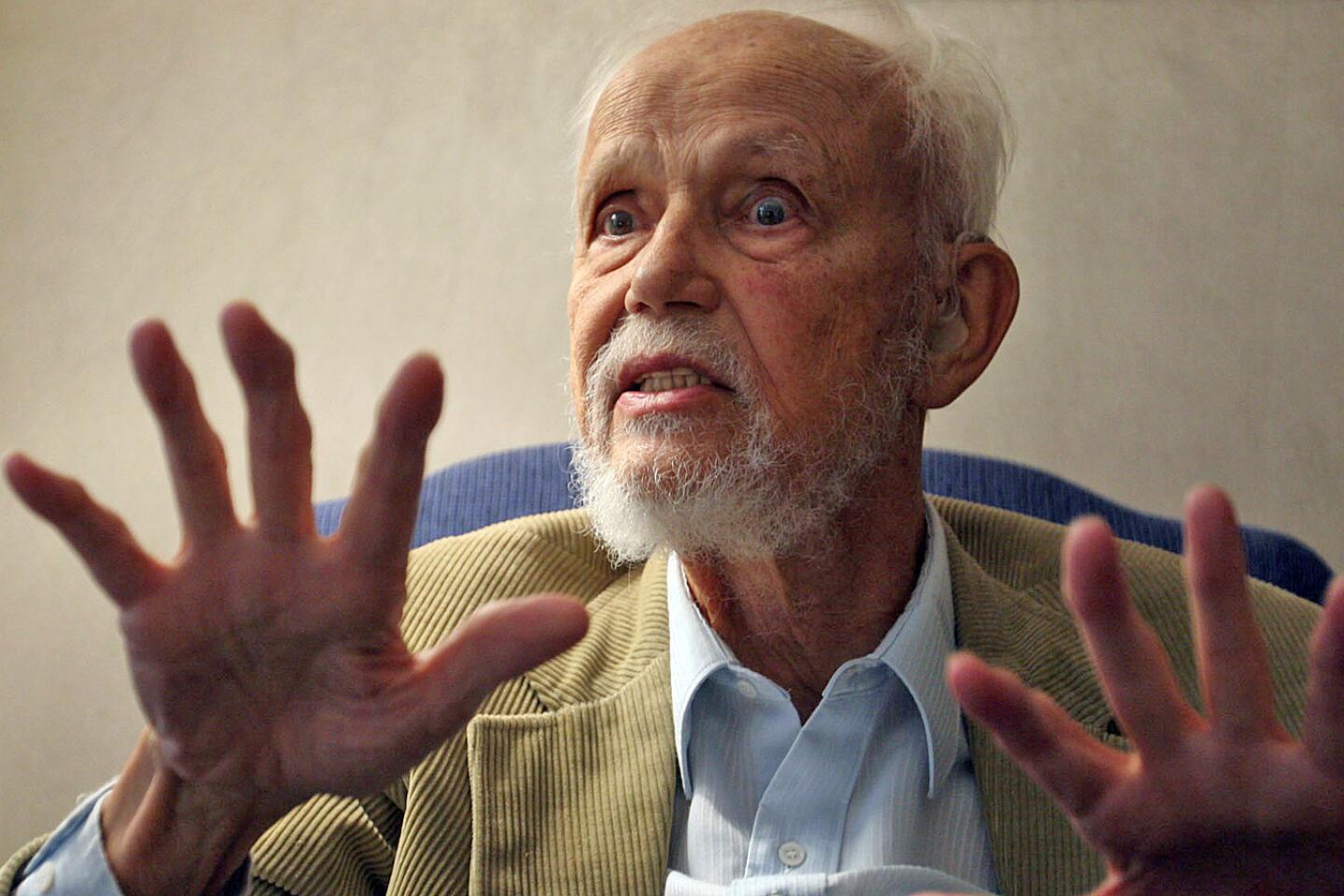Monty Hall, the original host and co-creator of âLetâs Make a Deal,â the long-running game show that debuted in 1963, making kooky audience costumes and carnival-style bartering an institution on daytime television, has died, according to Associated Press. He was 96.
Hall, who was also a dedicated philanthropist, died of heart failure Saturday morning at his home in Los Angeles, according to his daughter Sharon Hall.
âWe knew this was going to happen â he was 96 â but youâre never prepared,â she said.
One of the most popular TV game shows of the 1960s and early 1970s, âLetâs Make a Dealâ featured Hall as a fast-talking auctioneer-trader who randomly pulled people from the audience to trade for prizes that could be valuable â or relatively worthless âzonks,â gag gifts such as a barnyard animal or a giant jar of peanut butter.
âPeople had gotten excited on game shows before, but never to the extent that they did on âDeal,â â according to the 2006 book âRules of the Game,â which featured Hall on the cover.
âLetâs Make a Dealâ originally aired for 13 years, first on NBC and then ABC, and it has been revived in various daytime and prime-time incarnations since.
Over more than two decades, Hall hosted about 4,500 episodes and became wealthy co-producing it. When CBS revived the show in 2009, actor-comedian Wayne Brady stepped in as master of ceremonies. Hall served as a consultant and made the rare guest appearance.
As he roamed the studio, Hall would barter with various contestants, giving a woman $5, for instance, if she could remember her driverâs license number then tempting her to trade for what was behind a door or box.
When the show premiered, contestants wore business attire for about a month until a woman got Hallâs attention with a sign that said, âRoses are red/Violets are blue/I came here/to deal with you.â
âThe next week, everybody had a sign. Then came the crazy hats,â Hall told USA Today in 2001. âThree weeks after that came Jolly Green Giants, gorillas, sailors, pirates.â
1/46
The Santa Barbara writer created one of the first modern hard-boiled female private eyes and topped bestseller lists for decades, inspiring loyal readers to name their daughters after the seriesâ heroine, Kinsey Millhone. She was 77. Full obituary
(Carolyn Cole / Los Angeles Times) 2/46
The veteran sports broadcaster was long recognized as one of the most versatile and perhaps most enthusiastic announcers of his era. He also was an author, a longtime fixture at Pasadenaâs Rose Parade, the host of several sports-themed TV game shows and was still calling San Diego Padres baseball games in his later years. He was 82. Full obituary
(Lenny Ignelzi / Associated Press) 3/46
Lee, elected in 2011, was the first Chinese American mayor of San Francisco, home to the oldest Chinatown in the United States. He oversaw years of dramatic growth that transformed the cityâs skyline while also sending real estate values to stratospheric levels. He was 65. Full obituary
(David Butow / For The Times) 4/46
The singer and actor became a TV icon in the 1960s playing the lovably naĂŻve Gomer Pyle on âThe Andy Griffith Showâ and the spinoff series âGomer Pyle, U.S.M.C.â He was 87. Full obituary
(CBS Photo Archive / Getty Images) 5/46
Called âthe Elvis of Operaâ and the âSiberian Expressâ by some, Hvorostovsky was known for his velvety baritone voice, dashing looks and shock of flowing white hair. He was 55. Full obituary
(Shiho Fukada / Associated Press) 6/46
The syndicated gossip columnistâs mixture of banter, barbs, and bon mots about the glitterati helped her climb the A-list as high as many of the celebrities she covered. She was 94. Full obituary
(Stephen Chernin / Associated Press) 7/46
The fashion iconoclastâs clingy styles helped define the 1980s. Naomi Campbell was a favored model, and Michelle Obama wore his designs as U.S. first lady. He was 77. Full obituary
(Barbara Davidson / Los Angeles Times) 8/46
Kaji was the founding president of the Japanese American National Museum, established in 1992 in Little Tokyo. Years earlier, he established his own accounting firm and was part of a group that founded Merit Savings & Loan, one of the first and one of the few Japanese American-owned banks. He was 91. Full obituary
(Edward Ornelas / Los Angeles Times) 9/46
As one of the founding fathers of rock ânâ roll, Fats Domino blazed a singular path in the history of popular music. Pounding a piano and booming in a baritone both warm and conversational, he gave the nascent genre a shot of rhythm and blues, jazz and boogie woogie from his native New Orleans. He was 89. Full obituary
(AFP / Getty Images) 10/46
Best known for his portrayal of the sharp-tongued butler in the TV sitcoms âSoapâ and âBenson,â Guillaume also played Nathan Detroit in the first all-black version of âGuys and Dollsâ and became the first African American to sing the title role in âThe Phantom of the Opera,â appearing with an otherwise all-white cast in Los Angeles. He was 89. Full obituary
(Ann Johansson / For The Times) 11/46
Hefner built a publishing and entertainment empire on the idea that Americans should shed their puritanical hang-ups and enjoy sex. As the founder of Playboy magazine, he pitched an alternative standard â swinging singlehood â which portrayed the desire for sex as being as normal as craving apple pie. He was 91. Full obituary
(George Brich / Associated Press) 12/46
The prolific character actor and occasional leading man brought a soulful, hangdog presence to such varied films as âAlien,â âParis, Texas,â âRepo Manâ and âPretty in Pink,â becoming a favorite of film fans and directors alike. He was 91. Full obituary
(Richard Derk / Los Angeles Times) 13/46
The gay rights pioneer brought a Supreme Court case that struck down parts of a federal law that banned same-sex marriage and led to federal recognition for gay spouses. She was 88. Full obituary
(Richard Drew / Associated Press) 14/46
Stomping over miniature bridges and buildings in a rubber suit, Nakajima portrayed Godzilla, the fire-breathing, screeching monster that became Japanâs star cultural export and an enduring symbol of the pathos and destruction of the Atomic Age. Nakajima said he invented the character from scratch, and developed it by going to a zoo to study how elephants and bears moved. He was 88. Full obituary
(Junji Kurokawa / Associated Press) 15/46
Kanno spent what should have been his final high school years confined to a World War II-era internment camp. He went on to become one of Americaâs first Japanese American mayors as an early-day politician in Orange County. He was 91. Full obituary
(Mark Boster / Los Angeles Times) 16/46
Romero will be remembered best for co-writing and directing âNight of the Living Dead.â The âLiving Deadâ franchise went on to create a subgenre of horror movies whose influence across the decades has endured, seen in films like âThe Purgeâ and TV shows such as âThe Walking Dead.â He was 77. Full obituary
(Amy Sancetta / Associated Press) 17/46
The Oscar-winning actor appeared in classic films such as Alfred Hitchcockâs âNorth By Northwestâ and starred in the âMission: Impossibleâ television series in the 1960s. He won his Academy Award for his portrayal of washed-up Bela Lugosi in Tim Burtonâs âEd Wood.â He was 89. Full obituary
(CBS Photo Archive / CBS via Getty Images) 18/46
The French survivor of Nazi concentration camps and a European Parliament president was one of Franceâs most prominent female politicians. She was best known in France for leading the heated battle to legalize abortion in the 1970s. Franceâs abortion rights law is still known four decades later as the âLoi Veil.â She was 89. Full obituary
(AFP / Getty Images) 19/46
The British author created Paddington Bear, the marmalade-loving teddy in a duffel coat and floppy hat. His creation become an icon immortalized in print, on screens and as countless stuffed toys. Bond was 91. Full obituary
(Sang Tan / Associated Press) 20/46
Pressman, center, was an Emmy-winning journalist who worked at WNBC for more than 50 years after stints at New Jerseyâs Newark Evening News and the New York World Telegram and Sun. He covered the 1956 sinking of the Italian ocean liner Andrea Doria, riots at the 1968 Democratic National Convention, the Woodstock festival in 1969 and the terror attacks on Sept. 11, 2001. He was 93. Full obituary
(Ron Frehm / Associated Press) 21/46
The Santa Cruz entrepreneur opened one of the worldâs first surf shops and pioneered the neoprene wetsuit that helped popularize year-round cold-water surfing. He lost his eye in a surfing accident. He was 94. Full obituary
(Dan Coyro / Associated Press) 22/46
The former dictator of Panama often played opposing sides of Cold War-era political battles until he was ousted by his on-again, off-again sponsors and toppled in a U.S. invasion. He was 83. Full obituary
(AFP / Getty Images) 23/46
Deford was an award-winning sports journalist and commentator whose elegant reportage was a staple for years at Sports Illustrated and National Public Radio. He was the first sportswriter awarded the National Humanities Medal. In 2013, President Obama honored him for âtransforming how we think about sports.â He was 78. Full obituary
(Carolyn Kaster / AP) 24/46
Perenchio deftly pulled the levers of power to create culturally defining media events, propel political candidates, collect masterpiece artworks and become one of the richest men in Los Angeles. In late 2014, he announced that he would leave much of his collection â at least 47 works valued at more than $500 million â to the Los Angeles County Museum of Art. He was 86. Full obituary
(Genaro Molina / Los Angeles Times) 25/46
The polarizing Fox News founder was credited with turning the news channel into a ratings powerhouse over his 20 years at the helm. He was ousted from the network following sexual harassment charges. He was 77. Full obituary
(Jennifer S. Altman / For The Times) 26/46
The former child star played Joanie Cunningham in the sitcoms âHappy Daysâ and âJoanie Loves Chachi.â Her more recent credits included âThe Love Boatâ and âMurder, She Wrote.â She was 56. Full obituary
(Wally Fong / Associated Press) 27/46
Using insult as his weapon of choice and a quick, knowing smirk as his defense, Rickles delighted audiences with his brand of aggressively caustic humor that targeted everyone from unknown âhockey pucksâ to big-name celebrities. He was 90. Full obituary
(Jay L. Clendenin / Los Angeles Times) 28/46
A close confidante of Nelson Mandela, Kathrada dedicated his life to opposing apartheid and racism. An African National Congress activist, he played a major role in South Africaâs liberation struggle. He was 87. Full obituary
(Kopano Tlape / EPA) 29/46
The billionaire businessman and philanthropist was the last in his generation of one of the countryâs most famously philanthropic families. He was 101. Full obituary
(D. Pickoff / Associated Press) 30/46
The Pulitzer Prize-winning newspaper columnist was part of the wave of practitioners of what came to be known as New Journalism: a group of gifted writers that included Tom Wolfe, Gay Talese, Hunter S. Thompson, Joan Didion and others who reported on the social and cultural upheavals of the 1960s and â70s. His writing made him a New York City institution for more than 40 years. He was 88. Full obituary
(Mario Cabrera / Associated Press) 31/46
One of the founding fathers of rock ânâ roll, Berry was an innovator who designed much of the musicâs sonic blueprint and became his eraâs most creative lyricist. He was 90. Full obituary
(Michael Ochs Archives / Getty Images) 32/46
The Nobel-prize winning poet was known for capturing the essence of his native Caribbean. His work was widely praised for its depth and bold use of metaphor, and its mix of sensuousness and technical prowess. He was 87. Full obituary
(Berenice Bautista / Associated Press) 33/46
The Boxing Hall of Fame trainer and manager handled the careers of 19 champions including heavyweight Evander Holyfield. Duva with his family built the promotional company Main Events into one of boxingâs powerhouses. He was 94. Full obituary
(Mike Groll / Associated Press) 34/46
The silver-haired and dapper Osborne was a bona fide movie connoisseur who displayed his wide knowledge of films as the genial host on Turner Classic Movies since its launch in 1994. Osborne was a longtime columnist for the Hollywood Reporter and the âofficial biographerâ of the Academy Awards. He was 84. Full obituary
(Carolyn Cole / Los Angeles Times) 35/46
Dubbed the âAcrobat of Scatâ for his vocal delivery, Jarreau was admired by fans for his imaginative and improvisational qualities. He is best known for his single âWeâre in This Love Togetherâ from 1981. He is the only Grammy vocalist to win in the jazz, pop and R&B categories. He was 76. Full obituary
(Felipe Dana / Associated Press) 36/46
Mansfield won the Nobel Prize for helping to invent MRI scanners. In 1978, he was the first person to step inside a whole-body MRI scanner so it could be tested on a human subject. His work, alongside chemist Paul Lauterbur, revolutionized the detection of disease by revealing internal organs without the need for surgery. He was 83. Full obituary
(David Jones / Associated Press) 37/46
Rivaâs portrayal of an elderly woman in the 2012 end-of-life drama âAmourâ earned her international acclaim and the distinction of being the oldest nominee for a lead actress Oscar. She was 89. Full obituary
(Francois Mori / Associated Press) 38/46
Moore rose to stardom on âThe Dick Van Dyke Showâ in the 1960s and went on to headline âThe Mary Tyler Moore Show,â a highly successful sitcom in the 1970s (pictured). The actress and her television character became so entwined that Moore became a role model for women who sought to challenge the conventions of marriage and family. She was 80. Full obituary
(CBS Photo Archive / Getty Images) 39/46
Cernan, commander of NASAâs Apollo 17 mission, set foot on the moon in December 1972 during his third space flight. He was the last of only a dozen men to walk on the moon. He returned to Earth with a message of âpeace and hope for all mankind.â He died at 82. Full obituary
(SSPL / Getty Images) 40/46
The former California state librarian wrote rich cultural, economic and political histories on the birth, growth and maturation of the Golden State. He captured the stateâs rise in influence and its singular hold on the public imagination in his sweeping âAmericans and the California Dreamâ series. Full obituary
(Lawrence K. Ho / Los Angeles Times) 41/46
Youguang was a linguist considered to be the father of modern Chinaâs Pinyin Romanization writing system. Adopted by the Peopleâs Republic in 1958, Pinyin has virtually become the global standard because of its simplicity and consistency. He was 111. Full obituary
(Wang Zhao / AFP/Getty Images) 42/46
Dutton was the owner of Duttonâs Books, a Los Angeles landmark with its overflowing shelves and hard-to-find titles. Duttonâs Books on Laurel Canyon Boulevard, along with sister locations in Burbank and downtown Los Angeles, was at the very center of literary L.A. when it opened in 1961. He was 79. Full obituary
(Gina Ferazzi / Los Angeles Times) 43/46
Kamae was one of the most influential Hawaiian musicians of the last half-century and a filmmaker who painstakingly documented the culture and history of the islands. He had long been the face of the Sons of Hawaii, a popular recording group and a pioneering force in traditional island music. He was 89. Full obituary
(Marco Garcia / For The Times) 44/46
The British war correspondent was the first journalist to report the Nazi invasion of Poland that marked the beginning of World War II. She won major British journalism awards, and was made an Officer of the Order of the British Empire by Queen Elizabeth II. She was 105. Full obituary
(Mike Clarke / AFP/ Getty Images) 45/46
The former Iranian president was an aide to Iranâs revolutionary supreme leader, the late Ayatollah Ruhollah Khomeini. Although Rafsanjaniâs legacy was tarnished by allegations of corruption and authoritarianism, his backing helped moderate President Hassan Rouhani win election in 2013, setting the Islamic Republic on a path to ending its disputed nuclear program and easing its isolation from the West. He was 82. Full obituary
(Ebrahim Noroozi / Associated Press) 46/46
A scholar of world religions, Smith is best known for his work âThe Religions of Man,â first published in 1958. It was reissued as âThe Worldâs Religionsâ in 1991 and has sold about 2 million copies. His informed yet accessible prose led many laymen to read his books as their introduction to religions of the East and West. He was 97. Full obituary
(Tina Fineberg / Associated Press) NBC raised a corporate eyebrow over the outbreak of zany ensembles, but Hall said they would stay because âit lends quite a flavor to the show,â he said in a 2002 interview with the Archive of American Television.
Hall compared hosting âDealâ to competing in a decathlon because he constantly had to ad-lib based on contestantsâ choices, he later said.
A native of Canada, Hall moved to Los Angeles from New York in 1961 â the year he turned 40 â hoping to change his luck in broadcasting, he later said.
For five years, he had tried to break through on TV in New York but ended up mainly appearing on what he called âfringe stuffâ that included narrating the NBC western anthology âCowboy Theatreâ in 1957.
He finally broke through hosting the CBS game show âVideo Village,â which emcee Jack Narz left early in its run in 1960. When production of the weekday game show moved west, so did Hall.
In 1962, he sold âYour First Impression,â a game show that involved identifying a mystery guest, to NBC and met his future business partner, Stefan Hatos, a network employee.
Over lunch at a deli at Sunset Boulevard and Vine Avenue, Hatos and Hall came up with the idea for âLetâs Make a Deal.â It was inspired by âThe Lady, or the Tiger?â the Frank R. Stockton short story about a person choosing between two curtain-draped tents, and âThe Auctioneer,â a radio show that Hall had hosted in Toronto.
âDuring the tryout phase, we would call people who had clubs and offer to provide entertainment,â Hall told the Toronto Star in 2009. âOnce we did the show at 8 a.m. for 16 women who belonged to the Latter-Day Saints knitting society in the Valley.â
The showâs signature closing gave two contestants a choice between prizes hidden behind door no. 1, 2 or 3. It spawned a controversy in the 1990s that became known as âthe Monty Hall problemâ: Why is it better for a contestant to switch choices after the contents of a door that was not picked are revealed?
Books were written about the probability puzzle that continues âto perplex world-class mathematicians,â according to âThe Guide to United States Popular Culture.â
When interviewers questioned whether the show glorified greed, Hall invariably insisted it was about âgamblingâ or ârisking.â âIt was just people coming with nothing, and going home with something, whether a dining-room set or a goat,â Hall told the Jerusalem Post in 1993. âIt had great entertainment value, thatâs all.â
The showâs 50th anniversary was marked at the 2013 Daytime Entertainment Awards, which gave a spry 91-year-old Hall a Lifetime Achievement Award.
Hall raised almost $1 billion for charity, according to a biography by his alma mater, the University of Manitoba.
A sickly child, he spent months bedridden and upon recovering knew he wanted to help others, he later said. He was also influenced by his mother, who raised money for those in need even though we âdidnât have two nickels to rub together,â he often said.
He traveled extensively, often serving as toastmaster at events for Variety Club, a childrenâs charity with chapters around the world, and raised money for universities and hospitals in Israel.
The son of a butcher, he was born Monte Halparin on Aug. 25, 1921, in Winnipeg, Canada, to Maurice and Rose Halparin. His Jewish grandparents had emigrated from Russia.
After skipping a couple of grades, he graduated from high school at 14. Unable to afford college, he spent two years as a delivery boy for his father before his family cobbled together $150 to pay for a year at the University of Manitoba.
Halfway through his sophomore year, he ran out of money and was back home working at a clothing factory when the largesse of a stranger changed the course of his life.
A local businessman offered to pay his college tuition if Hall maintained an âAâ average and promised to do the same for someone else someday.
Hall returned to Manitoba as a pre-med student and earned a bachelorâs degree in chemistry and zoology in 1946. He failed to gain entrance to the collegeâs medical school, which limited the number of Jews accepted and twice denied him admission, according to the university biography.
As president of the schoolâs student body, Hall helped lead a protest that eventually quashed the quota system, the biography said. But by then he had discovered show business, acting in university theater productions and hosting student variety shows.
In the early 1940s, Hall emceed Canadian Army shows. After World War II, he started out at a Winnipeg radio station before moving on to Toronto, where he met his future wife, actress Marilyn Plottel, his first night in town. They married in 1947.
At a Toronto radio station, his boss told him âHalparinâ was too long so he shortened it to âHall.â When his first name was misspelled as âMontyâ in advertising, he âwent with it,â Hall said in the 2002 archive interview.
Although he developed and hosted âWho Am I,â a radio quiz show that was a syndicated success in Canada, his early years in the business were largely a struggle. At one point, his younger brother, Robert, suggested Hall give up entertainment to practice law with him.
Hall once aspired to acting and could sound wistful about his side-tracked ambition.
âIt has to be OK,â Hall said of his game-show success in a 2003 UPI interview. âIt was my ticket to fame and fortune. But it also gave me the opportunity to do something really important, raising funds for charity. ⌠Thatâs more important than three doors.â
Hall is survived by two daughters, Sharon Hall, a producer, and Joanna Gleason, an actress; a son, Richard Hall, a producer; and five grandchildren. His wife, Marilyn, an Emmy-winning producer, died June 5.
âHe was an inspiration to us on a daily basis. The way he lived his life with his heart on his sleeve and using his good fortune and public platform to help others,â Sharon Hall said. âBut the real accomplishment was his marriage at 70 years to our mother, and his love and devotion to three kids and five grandchildren.â
Nelson is a former Times staff writer.
[email protected]
ALSO
Frank Hamblen, longtime Lakers and Phil Jackson assistant, dies at 70
Anne Jeffreys, the âghostess with the mostessâ on TVâs âTopper,â dies at 94
Playboy founder Hugh Hefner, who shook up American morality with an ideal of swinging singlehood, dies at 91
